

PhD Student vs Graduate Student [Correct terminologies]
As you progress down the academic pathway it can become confusing to work out what the appropriate terminology is for your current level of education. Is it PhD student? Is it graduate student? Is the PhD student the same as a graduate? Well, this article will answer all your questions.
Graduate student is an umbrella term for someone with an undergraduate qualification (bachelors, diploma), they are often performing graduate research in a Masters or PhD program. All PhD students are graduate students but not all graduate students are PhD students.
To fully get our heads around each of these definitions, we need to understand exactly what each term really means.
This is where we can look at the actual definitions of PhD student vs graduate student.

Definition of PhD student
A PhD student is someone who is currently enrolled in a doctorate degree program and is in the early stages of their course.
Some institutions require students to undergo a coursework component of their graduate program and are called a PhD student.
After the completion of the coursework component, with the research component still to go, they can be called a PhD candidate .
Definition of Graduate student
A graduate student is a known for a student who continues their studies after completion of their undergraduate degree.
The Cambridge dictionary defines it as:
A student who is studying for a degree that is higher than the one received after four years of study at a college or university.
Who is considered a graduate student?
Graduate students can include:
- Masters students
- PhD students
- Professional Masters
- Graduate academic certificate programs
- undergraduate/graduate hybrid degree programs
Even if you have got an undergraduate degree, there are many more options for you to obtain many more qualifications and build on your education. In these instances, you will be known as a graduate student.
Is a PhD student a graduate student?
Yes, a PhD student is a graduate student.
They have spent up to 4 years in their undergraduate programs in order to qualify for admission into a PhD program.
PhD students are able to call themselves graduate students but many choose to refer to themselves as PhD students or candidates.
Is PhD the same as graduate?
A PhD is the highest education attainable as a graduate.
In order to obtain a PhD one must graduate from an undergraduate degree. From the moment of graduating in their undergraduate degree they are known as a graduate.
The order of becoming a PhD from a graduate is shown in the table below. It also includes what happens after you get a PhD.
Is a doctoral student the same as a PhD student?
Strictly speaking, a PhD student is someone who is pursuing a doctor of philosophy.
A PhD student is a type of doctoral student but not all doctoral students are PhD students. Anyone aiming to achieve the title of ‘Dr’ is a doctoral student.
There are many other different types of doctoral students including:
- Doctor of Arts (DA)
- Doctor of Business Administration (DBA)
- Doctor of Design (DDes)
- Doctor of Engineering or Engineering Science (DEng, DESc, DES)
- Doctor of Education (EdD)
- Doctor of Fine Arts (DFA.)
- Doctor of Juridical Science (JSD, SJD)
- Doctor of Musical Arts (DMA)
- Doctor of Music Education (DME)
- Doctor of Modern Languages (DML)
- Doctor of Nursing Science (DNSc)
- Doctor of Philosophy (PhD)
- Doctor of Public Health (DPH)
- Doctor of Sacred Theology (STD)
- Doctor of Science (DSc, ScD)
- Doctor of Theology (ThD)
There are also professional degrees that lead to the person being called Doctor. These professional degrees result in honorific doctor titles, including those found in the table below.
In my 15 years in academia, I would only really refer to someone as a PhD student. However, if someone was to introduce themselves as a doctoral student I would understand them to be a PhD student.
Wrapping up
In this article, we have learned the difference between PhD student vs graduate student.
In summary, a graduate student is an umbrella term that includes anyone that has done an undergraduate qualification and is continuing their education. It includes Masters students, PhD students and others.
All PhD students are graduate students but not all graduate students are PhD students.

Dr Andrew Stapleton has a Masters and PhD in Chemistry from the UK and Australia. He has many years of research experience and has worked as a Postdoctoral Fellow and Associate at a number of Universities. Although having secured funding for his own research, he left academia to help others with his YouTube channel all about the inner workings of academia and how to make it work for you.
Thank you for visiting Academia Insider.
We are here to help you navigate Academia as painlessly as possible. We are supported by our readers and by visiting you are helping us earn a small amount through ads and affiliate revenue - Thank you!

2024 © Academia Insider


- Majors & Careers
- Online Grad School
- Preparing For Grad School
- Student Life
PhD Candidate vs Student: What’s the Difference?

Many people use the terms “PhD student” and “PhD candidate” interchangeably. However, these terms actually mean something quite different, including a different status level at universities.
We’re here to define the differences between a PhD candidate vs student, as well as other essential information, before you continue your educational journey.
Table of Contents
What I s a PhD student?
A doctoral student is anyone who is enrolled in a doctorate degree, also referred to as a Doctor of Philosophy (PhD) program. PhD students are typically required to complete a certain number of course credits and sit qualifying exams. Next, they can move on to conduct research and present it in the form of a dissertation.
A PhD is centered around self-directed research and possibly teaching/running tutorials, but they typically also involve a substantial amount of coursework and require attending classes, either online or in person.
Unlike candidates, PhD students are in the process of completing the required coursework for the degree. They haven’t passed the relevant qualifying exams yet.
What Is a PhD Candidate?
A PhD candidate has completed the required coursework and passed the qualifying exams for their doctorate program. They are currently working on their dissertation.
Most PhD students need to go through an application process and show they meet certain requirements such as a relevant master’s degree . To become a PhD candidate, doctoral students need to pass an internal application process, typically involving a set of exams.
This stage involves significant research usually in innovative areas and incorporating this into a dissertation (this stage is sometimes referred to as “all but dissertation” [ABD]), as they’ve completed all other aspects of the program and satisfied these requirements. To complete their doctoral journey, a PhD candidate must defend their dissertation. Once they’ve successfully done this, they will be awarded their degree and move from PhD candidate to doctor of their chosen field.
PhD Candidate vs Student: 6 Key Differences

There are a number of key differences between a PhD student vs PhD candidate, from their status to the structure and nature of study.
Note: Some universities have recently started adopting hybrid approaches (where there is no clear difference between PhD students and PhD candidates). These programs don’t involve any qualifying exams and students typically begin the dissertation as part of their coursework. Most schools, however, continue with the traditional distinction between a PhD candidate and PhD student.
1. Program Stage
A PhD student could be at any stage of the doctoral program . Coursework still needs to be completed and qualifying exams must be passed. Students may be in the initial stage of the program or about to complete the coursework (before beginning their research).
On the other hand, a PhD candidate has completed all coursework and has at least started their research. They may have completed their dissertation and are preparing to defend it.
2. Research Progress
A PhD student may not have selected their research topic or settled on a particular research question. A candidate’s research is in progress and they should already have a clear research question.
3. Relationship with Advisors
A PhD student may not yet have an advisor. A candidate has an established working relationship with their advisor and works closely with them to complete their research and dissertation.
4. Level of Support
Although they work closely with an advisor, a PhD candidate is generally expected to work more independently than a student enrolled in a doctoral student. Once candidates reach this stage of their doctorate, they typically won’t receive as much direction or supervision.
5. Flexibility and Structure
Understandably, PhD candidates have more freedom and flexibility in their work. Most candidates choose their area of research, as well as the methods used to conduct their work. As part of their coursework, PhD students usually have to work within a set structure (e.g., completing core subjects, meeting deadlines).
Being a PhD candidate comes with a certain degree of status. If they’ve demonstrated a degree of expertise through completing qualifying exams, candidates can put the letters PhD(c) after their name.
Tips for PhD Candidates

A PhD is an advanced degree designed to demonstrate expertise in a given field, as well as high-level skills and abilities in various areas (including research and writing). As such, earning a doctorate can be a challenging process.
The following tips for doctoral candidates will help you put your best foot forward and set yourself up for success.
Stay Organized
Because PhD candidates have to balance many competing priorities, organization is essential. Using organizational tools such as calendars, note-taking apps , and project management software can help you keep track of deadlines and meet your targets.
Focus on Your Research
PhD candidates likely have busy schedules with plenty of demands (such as teaching commitments and crafting a dissertation). As it’s the backbone of any doctoral program, be sure to prioritize this part of your work and monitor progress to stay on track.
Actively Seek Out Feedback
Because PhD candidates often work independently, there’s a risk of feeling isolated. Ask your advisors, mentors, and fellow candidates for feedback and advice. This will help ensure that you’re considering all aspects of your research question and multiple solutions, rather than focusing too intensely on a single area.
Take Advantage of Networking Opportunities
Networking is one of the biggest benefits for PhD candidates, so take full advantage of these events. Use this time to build a strong network of professors, advisors, fellow candidates, and other professionals you meet at conferences and events.
Take Care of Yourself
A PhD program can be taxing, and it’s easy for your mental and physical health to take a backseat. Make sure you exercise, eat well, and get enough sleep . Remember: Resting and recharging is crucial for working on your dissertation.
How Long Is a Typical PhD Candidacy?
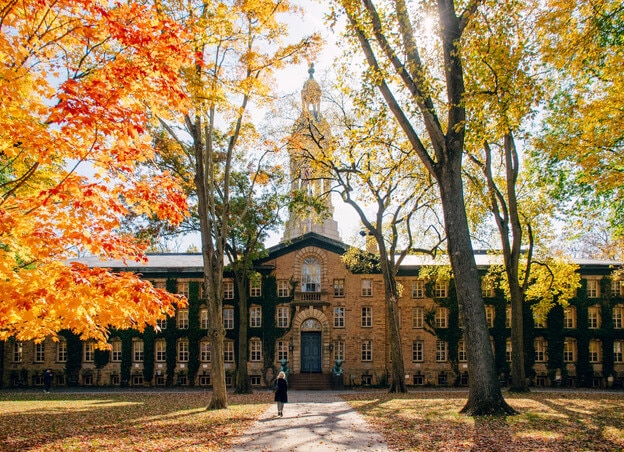
Most PhD students require 1-2 years to complete their coursework and pass their qualifying exams. However, the length of a PhD candidacy is much more open. In most cases, programs take between two and five years, depending on:
- the complexity of the field of research
- the candidate’s other commitments, such as teaching load
- other abilities, such as a candidate’s level of organization.
Once a PhD candidate has completed their dissertation, they have to defend it successfully before a panel of faculty members before they can earn their doctorate degree. This process of defending a PhD dissertation can take several months.
Some universities specify a maximum length for PhD candidacy duration. For example, Carnegie Mellon University limits this to six years .
Benefits of Being a PhD Candidate
Being a PhD candidate can be rewarding for several reasons:
1. Research Opportunities
You’ll be exposed to vast research opportunities in your field. You may contribute to valuable discoveries while developing advanced knowledge and skills.
2. Networking
Through your PhD candidacy, you’ll also be in a great position to build gain a stronger network of fellow professionals.
3. Critical Thinking
A PhD candidacy can help you develop high intellectual independence and critical thinking skills.
4. Career Opportunitie s
A PhD is an advanced degree that allows you to build a rewarding career in the academic, government, and private sectors. PhD-holders can also expect to earn more than other graduates and are most likely to find a job.
5. Salaries
According to Northeastern University , professionals with a doctorate degree earn an average annual salary of $99,290 on average (and much more for the highest-paid PhDs ) and have a 1.5% unemployment rate. For master’s degree holders, the average annual salary is $81,867 average annual salary and a 2.6% unemployment rate.
6. Personal Fulfillment
Being a PhD candidate can help you pursue your passions. This advanced qualification will allow you to become a specialist in your chosen field, allowing you to hone in on the exact subject thatl fulfills you the most.
Qualifying Exams to Become a PhD Candidate

While requirements vary by program, to become a PhD candidate, most students will need to pass a set of exams. These will test students’ knowledge in the field, measure their research skills, and ensure they’re ready to start their dissertation research.
Traditionally, qualifying exams for PhD candidates involved a written test and an oral exam. These will cover a range of topics related to your field of study, with the oral component designed to demonstrate your level of understanding.
Some universities have recently started to issue doctoral students with a set of questions and have them submit the answers within a set timeframe (usually around two weeks). Other schools ask prospective doctoral candidates to submit a dissertation proposal instead of an exam.
Frequently Asked Questions
Can a phd candidate be called a doctor.
In most cases, a doctoral candidate cannot be called a doctor until after they successfully defend their dissertation and receive their doctorate.
Can I Put ‘PhD Candidate’ after My Name?
Once you’ve passed qualifying exams and embarked on dissertation research, you’re technically entitled to put “PhD candidate” or “PhD (c)” after your name. However, this is uncommon and not always recommended. It is generally more acceptable to mention that you are pursuing a doctorate (along with the field of research and university) or that you expect to complete your PhD in a certain year (on your CV and online profiles).
How Long Can You Be a PhD Candidate?
There isn’t a set length of time that a person can be a PhD candidate. The length of candidacy depends on a range of factors, including the subject of research and program requirements. Most PhD candidates complete this phase in around 3-5 years (where some university programs have set limits).
Do PhD Students Take Classes?
Yes, most PhD students must take classes and complete coursework as part of the first 1-2 years of their doctorate program. Once they’ve completed this coursework and passed qualifying exams, they move on to work on their research dissertation. At this stage, they’ll be considered a PhD candidate.
Key Takeaways
Now that you know the differences between PhD candidates vs. students, you’ve got a deeper understanding of how to obtain a doctorate. However you slice it, both will help you build your knowledge and skills to become an expert in your field.
However the program is structured, a PhD is a highly valuable degree that allows you to become a high-level professional and build a successful career.
If you know a PhD candidate who’s celebrating their accomplishments soon? Take a look at this guide to the best PhD graduation gifts .
- 10 Best PhD Programs in Pennsylvania
- Top 10 Best PhD in Cybersecurity Online Programs
- 10 Top PhD Programs in Chemistry
- The Top 10 Easiest PhDs: Tuition, Duration, and Financial Aid
- Top 10 Fully Funded PhD Programs and Universities
- Top 10 Best PhD in Medicine Programs

Lisa Marlin
Lisa is a full-time writer specializing in career advice, further education, and personal development. She works from all over the world, and when not writing you'll find her hiking, practicing yoga, or enjoying a glass of Malbec.
- Lisa Marlin https://blog.thegradcafe.com/author/lisa-marlin/ 12 Best Laptops for Computer Science Students
- Lisa Marlin https://blog.thegradcafe.com/author/lisa-marlin/ ACBSP Vs AACSB: Which Business Program Accreditations is Better?
- Lisa Marlin https://blog.thegradcafe.com/author/lisa-marlin/ BA vs BS: What You Need to Know [2024 Guide]
- Lisa Marlin https://blog.thegradcafe.com/author/lisa-marlin/ The 19 Best MBA Scholarships to Apply for [2024-2025]
14 Cheap Spring Break Destinations for College Students in 2024
How to get a master’s without a bachelor’s: the complete guide, related posts.

- Breaking Records: Yale Sees Most Selective Grad Admissions Season Yet

- 12 Best Laptops for Computer Science Students

Is a Master’s Degree Worth It? [2024 Guide]

Graduate Certificate vs Degree: What’s the Difference? [2024 Guide]

What is a Good GRE Score?

BA vs BS: What You Need to Know [2024 Guide]

Leave a Reply Cancel reply
Your email address will not be published. Required fields are marked *
Save my name, email, and website in this browser for the next time I comment.
Recent Posts
- Experience Paradox: Entry-Level Jobs Demand Years in Field
- Grad Trends: Interest in Artificial Intelligence Surges
- Applying to Big Tech This Year? Here’s How to Ace It.

© 2024 TheGradCafe.com All rights reserved
- Partner With Us
- Results Search
- Submit Your Results
- Write For Us

Welcome to Graduate Admissions
Learn about university-wide admission requirements and processes for MA, MS, PhD, and other non-professional graduate programs.
Your Starting Point for Graduate Study at Stanford
Browse this website to learn about university-wide requirements and processes for admission to MA, MS, PhD, and other non-professional graduate programs in the following Stanford schools:
Graduate School of Education | School of Engineering | School of Humanities & Sciences | School of Medicine | Doerr School of Sustainability
Explore Graduate Programs
Applying to a Professional School?
The professional schools have separate admissions offices and applications. Visit their websites below for information about applying to their graduate programs.
- Graduate School of Business: MBA | MSx | PhD
- School of Law: JD | Advanced Degrees
- School of Medicine: MD | MS in Physician Assistant Studies
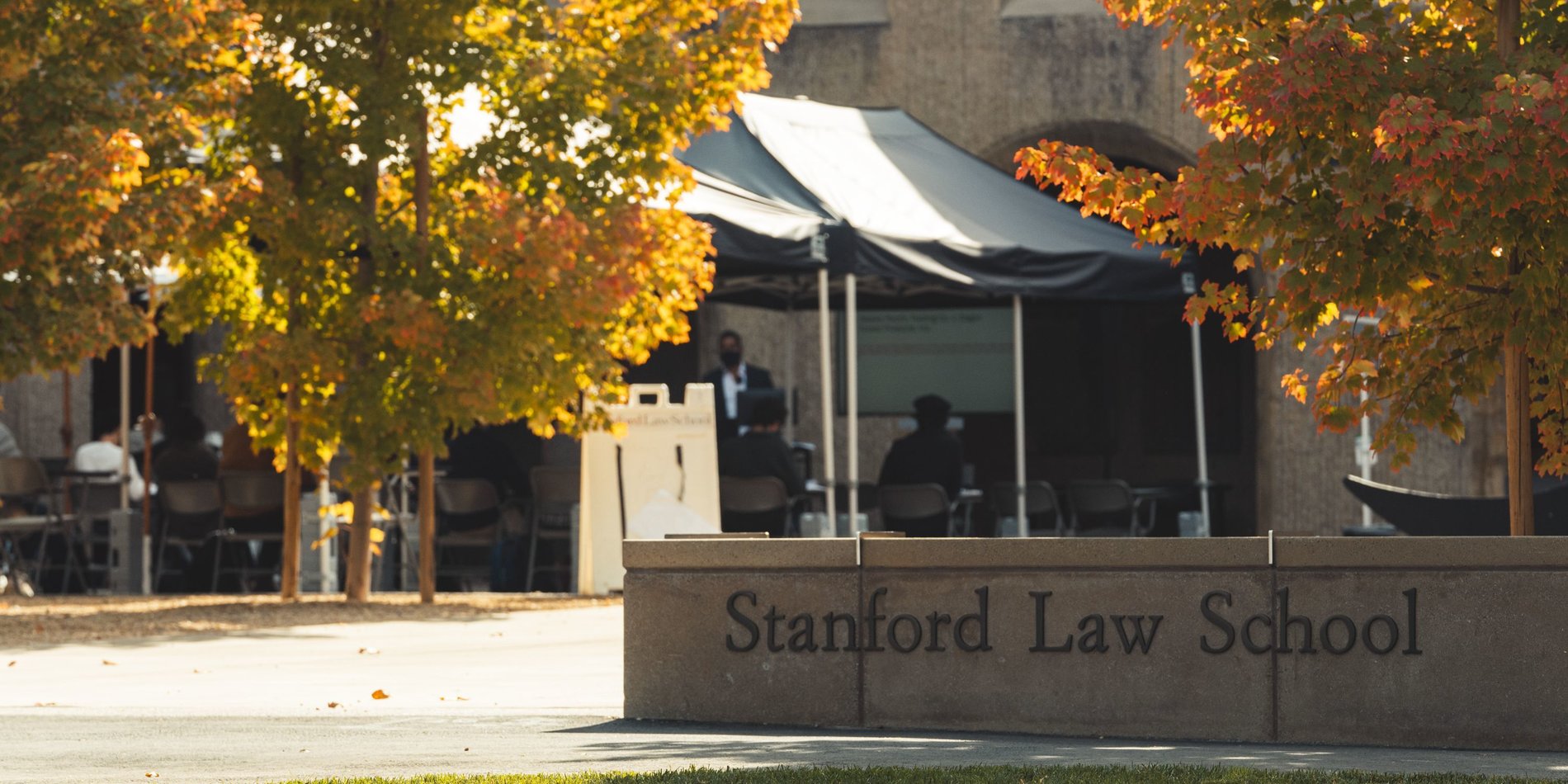
Why Stanford?
Consider joining Stanford’s globally diverse graduate community of 9,300 students.
- Watch Playlist: The Stanford Grad Experience and Advice to Prospective Students
- Visit Stanford’s Seven Schools
- See How Diversity Works at Stanford
- Fund Your Graduate Study
- Explore Campus Resources
- Pursue Leadership Development and Funding with Knight-Hennessy Scholars
- Guide to Applying for Graduate School
The process of preparing for and applying to a PhD program can be overwhelming. The University of Pennsylvania has created this webpage to help prospective PhD students think through the process so you can put together a strong application.
A Doctor of Philosophy (PhD) is the highest degree one may obtain within a particular field of study. This ranges from studies in Science, Technology, Engineering, and Math (STEM) fields; Social Science fields such as Education, Economics, Political Science, and Sociology; as well as Humanities fields such as English, History, Music, Philosophy, and more. The PhD degree aims to prepare people to think critically, develop research, and produce scholarship that may be used for further research or implementation . The PhD historically prepared students to take on faculty roles in colleges and universities, and that is still the goal for many students pursuing the PhD. However, today the PhD is a sought-after degree in many other industries including pharmaceutical research, arts organizations and other nonprofits, publishing, government policy, big tech, finance, and more.
- Who can apply to a PhD program? PhD education is available to people from various educational, occupational, socioeconomic, and demographic backgrounds.
- Who should get a PhD? People interested in uncovering new ideas, solutions, or processes within a specific area of study through conducting independent research.
- Why is it important for diverse candidates to become PhD holders? Our world thrives on heterogeneous ideas and experiences, which is why it is indispensable to include students with diverse perspectives in our PhD programs. These students will generate important and original research.
Most PhD programs are fully funded, meaning that for a specific number of years, the program will pay for your tuition and fees and health insurance, as well as provide you with a stipend for living expenses . The structure of this funding varies by field. Below is an outline of general funding information as well as trends according to field of study.
- Teaching Assistantships or Research Assistantships: Part-time service that provides teaching and research training opportunities within your area of study.
- Funding packages provided through faculty research grants: Many STEM fields fund students through research grants awarded to faculty. In these cases, students perform research alongside the faculty.
- Fellowships: Internal or external merit-based funding. Some fellowships require an application while others are given via nomination. Educational institutions typically have a resource listing fellowship opportunities. Winning a competitive fellowship looks good on your resume.
- Grants: Requires an application with supporting materials of either your grades, scholarly work, and/or anticipated research. These are available through internal and external means. Grants greatly vary so be sure to always understand the requirements. Educational institutions typically have a resource listing grant opportunities. Winning a competitive grant looks good on your resume.
- Employment: For example, serving as a residential advisor, on-campus jobs, etc. Some PhD programs restrict additional employment, so be sure to check before applying for jobs.
- The funding opportunities described here often can be combined.
Choosing a school or program that provides the most potential funding may be a challenging decision. The value of the same amount of funding will differ depending on the cost of living in different geographic locations. Admitted applicants should investigate cost-of-living tools (available on the web) and be sure to understand how their funding will be structured. Ask questions when you are admitted, such as:
- Could you share more about your program’s funding mechanism?
- For how long is funding guaranteed? How does that compare to the average time-to-completion? Historically, what percentage of students have received funding beyond the guaranteed funding package?
- Does funding cover tuition, fees, books, health insurance?
- Does the funding rely on teaching, research, or other service? How much and for how long?
Choosing a program for your studies is a personal decision that should reflect not only your research interests, but your work style, and interests outside of the classroom. Here we have identified five key tips to consider when selecting schools.
- Ask about which programs are strong in your area of interest, which have high completion rates, and which have career outcomes that align with your goals.
- Explore the websites of the professional academic associations in the field(s) that interest you. Many will have a directory of doctoral programs and other resources for graduate students. For example, see the American Economic Association’s list of graduate programs and their preparing for graduate school page .
- Conduct a general internet search with terms related to your research interest.
- Determine your geographic and personal preferences. Does the area meet your community needs? Is it important that the university aligns with your sociopolitical values? Do you prefer a large city or a smaller/college town? Is there a particular region(s) that has better access to resources needed to conduct your research?
- Access your current or former university career center. These services are often still available for former students!
- As you narrow your choices, try to identify at least 3 faculty in the programs of interest with whom you’d like to study. Also note how many of them have tenure. If relevant, research which of those faculty are taking on advisees in your year of matriculation.
- Read articles from faculty with similar research interests.
- Note the number of awards, publications, and service activities of faculty.
- Identify research opportunities funded by both your program and university at large.
- Connect with current and former students in the program for informational interviews.
- Connect with campus Diversity Offices.
- Whenever possible, before submitting your applications, make an appointment to visit the campuses and department(s) that interest you.
- Use LinkedIn to see what graduates of your program are doing and how they are involved in their communities.
- Estimate your feasible cost of living by geographic location and compare to the funding package offered.
- Consider availability of health insurance, childcare, housing, transportation, and other fringe benefits.
- Connect with a local bank or your prospective university’s financial services office for budgeting, savings, and other financial wellness advice.
- Research the career outcomes for PhD graduates from the institutions that interest you in your specific field.
- Your First Year in a Ph.D. Program
- What Does Academic Success Mean and How to Achieve it? (STEM)
- Pathways to Science (STEM)
- 7 Advantages PhDs Have Over Other Job Candidates (Industry)
- During your undergraduate/master’s education, you should pursue coursework and/or research that will prepare you for the higher expectations of a PhD program; for example, taking a research methods course, pursuing a summer research experience, or conducting research with a professor at your home institution.
- Identify instructors who could write a letter of recommendation. Share with those instructors your interest in doctoral studies; faculty can be excellent resources for advice as well as recommendations!
- Experiences outside of higher education can also strengthen your PhD application. These may range from project management to volunteer work.
- Develop soft or hard skills. A soft skill that is most useful from the first day of your PhD program is networking. This is necessary not only for meeting other students but also to find collaborators with similar research interests and selecting faculty for your dissertation committee. Learning how to negotiate will also serve you well when approaching collaborative projects. Hard skills related to your field might include learning statistical analysis software, economic theory, a foreign language, or search engine optimization. In short, identify a few soft and hard skills that you can familiarize yourself with prior to your program’s start date.
- Finally, prepare by identifying leading researchers and practitioners in your field , exploring peer-reviewed literature and/or publications, and gain familiarity with research methods.
- Typically, PhD applications are due 10-12 months in advance of the program’s start date (i.e. apply in November to start the following September). A good rule of thumb is to begin your application process 6 months before the deadline.
- The availability of reduced application fees or fee waivers varies and sometimes depends on financial status and/or experiences (AmeriCorps, National Society of Black Engineers, attending certain conferences, etc.). If you are interested in a reduced fee or waiver, reach out to the program coordinator for details.
- Be sure to address all the specific questions/topics in the statement prompt.
- Clearly state why you want to pursue a PhD.
- Propose your research interest.
- Identify the faculty you’d like to study under.
- Discuss the unique qualities/experiences you offer to the program/school.
- Outline what you hope to do with your degree.
- Ask for recommendation letters early in the process, at least 2-4 weeks before the deadline. A good letter takes time to write!
- Provide recommenders with your resume, information about the program, your statement of purpose and/or information about your research interests and research goals.
- Consider your current/former instructors, supervisors, colleagues. These should be people who can speak to your work ethic, academic abilities, and research interests.
- Test scores (i.e. TOEFL, GRE, GMAT, etc.) may or may not be required.
- All transcripts including those for coursework completed abroad and transfer credits. Some programs require official transcripts, which take longer to procure.
- Resume/Curriculum Vitae (CV)
- Writing sample (field dependent): Include a graduate-level sample and update any statements, statistics, etc. as needed. It is highly encouraged that you edit your previous work.
- Diversity statement: Many institutions offer an optional short statement where students can expand on their diverse backgrounds and experiences that may contribute to the diversity interests/efforts of the school.
- Dress professionally, even if the interview is virtual. You don’t necessarily need to wear a suit but dress pants/skirt and a blouse/button down shirt would be appropriate.
- Develop an engaging elevator pitch, a 30-60 second summary of your research interests and what you hope to gain by becoming a student at that particular university. Practice your pitch with a career counselor, faculty advisor, or friends, and ask for honest feedback.
- Prepare 2-3 questions to ask during the interview. These could include questions about program expectations, the experience and success of their PhD students, and (academic/financial/mental health) support for PhD students.
- Some interview programs will include multiple activities including a social event. Be sure to maintain a professional attitude: do not drink too much and keep conversation on academic/professional topics.
- This is also your opportunity to decide whether this campus is a good fit for you.
- Academia Insider is a good resource.
Unlike undergraduate and master’s level education, coursework is just one component of the degree. A PhD comes with additional expectations: you must independently conduct scholarly research in your field of study, train in specific activities such as teaching or lab/field research, pass “milestone” requirements along the way, such as comprehensive exams, and complete the process by writing a dissertation. Furthermore, some fields require you to write multiple articles (number varies by field/program) for conference presentation and/or peer-reviewed publication.
There are other important elements as well:
- Student/Advisor relationship. This is one of the most valuable relationships you can have as a PhD student. Your faculty advisor not only assists you with learning how to approach your research topic, but also typically serves as the lead supervisor of your dissertation research and writing, and ideally mentors you throughout the PhD experience. The selection process of choosing your advisor varies so be sure to know what is expected of you as a student and what is expected of the faculty member. Whenever possible, it is important to align your personality and work style with that of your faculty advisor. Many universities publish expectations for the PhD student/faculty advisor relationship; AMP’ed is Penn’s guide.
- Other relationships: Your faculty advisor is far from the only important person during your PhD career. Other faculty members will also serve on your dissertation committee and be potential mentors. Students in your program can also provide good advice and guidance along the way.
- Coursework: Most programs have a number of required courses all students must take regardless of research interests. Once you have finished this requirement, the classes you choose should closely align with your research topic. Choose courses that will help you learn more about your dissertation topic and research methods. It is a good idea to discuss elective course selection with your advisor.
- The dissertation is a large-scale, written document that explores a narrow research topic of your choice. It is the final step before receiving your degree and must be presented and “defended” to your dissertation committee (made up of faculty members) for approval. Defending means that you have to answer in-depth questions about your topic. While this might sound daunting, the dissertation is simply a demonstration of all the knowledge and expertise you have acquired through your PhD education.
- Networking comes in many forms and includes connections with your fellow classmates, faculty members, and scholarly community. Formal networking events typically take place at academic conferences, where scholars and students present research. Increasing your academic circle will not only allow you to have study buddies, but offer you the opportunity to collaborate on articles or even gain employment. Your school’s career center can provide best practices for effective networking.
Explore graduate programs at the University of Pennsylvania and click on the programs that interest you to learn more about admissions and academic requirements.
Upcoming Penn information sessions and recruitment events include:
- Fontaine Fellows Recruitment Dinner (by invitation only): every March
- Summer Virtual Series for undergraduates thinking about graduate school: June-July, 2024
- DEEPenn STEM (Diversity Equity Engagement at Penn in STEM): October 11-13, 2024. Application deadline is May 24, 2024.
- DivE In Weekend (Diversity & Equity Initiative for Mind Research): October 18-20, 2024. Application due May 30, 2024.
- IDDEAS@Wharton (Introduction to Diversity in Doctoral Education and Scholarship): April 2025. Application opens in November 2024.
National conferences to explore:
- The Leadership Alliance supports students into research careers
- McNair Scholar Conferences
- SACNAS , the largest multidisciplinary and multicultural STEM diversity event in the U.S.
- ABRCMS , the annual biomedical research conference for minoritized scientists
- The PhD Project for students interested in business PhD programs
Testimonials
Free Resources
PrepScholar GRE Prep
Gre prep online guides and tips, what is graduate school why go master’s and phds.
If you’re nearing the end of college or you’ve completed college, you’ve probably heard the term “graduate school” thrown around by your peers and teachers. In fact, you’ve probably heard all kinds of graduate-school related terms, like “graduate degree,” “Masters,” “PhD,” and more.
But what is a graduate degree? What is a PhD? What is a doctoral degree? What’s a doctorate? We’ll demystify it all here. (Hint: those last three are all the same thing.)
In this article, we’ll discuss what graduate school is, what graduate degrees you can get, and the difference between graduate and professional school. Then we’ll move on to discussing the benefits and drawbacks of graduate school, funding graduate programs, and how to apply to grad school.
What Is Graduate School?
What is grad school? Well, it’s not so much a specific “school” as a catchall term for some types of academic programs. Graduate degree programs offer advanced training (beyond a bachelor’s degree) in a specific academic discipline. They very much focus on advancing your subject-specific academic knowledge as opposed to preparing you for a specific career or job. Graduate degree programs often include opportunities to complete original research in the field.
There are a few different types of graduate degrees. We’ll review them in the next section.
What Is a Graduate Degree? The 3 Main Types
There are, generally speaking, three kinds of graduate degrees offered by graduate schools: the Master of Arts, the Master of Science, and the Doctor of Philosophy (PhD). The MA and MS offer additional schooling in a discipline beyond a bachelor’s degree. A PhD is the most advanced degree in a given academic field. (Note that this is not true of professional fields—we will discuss the difference in the next section.)
Quick side note: we've created the world's leading online GRE prep program that adapts to you and your strengths and weaknesses. Not sure what to study? Confused by how to improve your score? We give you minute by minute guide.
You don't NEED a prep program to get a great GRE score. But we believe PrepScholar is the best GRE prep program available right now , especially if you find it hard to organize your study schedule and don't know what to study .
Click here to learn how you can improve your GRE score by 7 points, guaranteed .

Master of Arts (MA)
What is a Master’s Degree? The Master of Arts is the typical Master’s graduate program for humanities and social science disciplines. They can be fairly general—for example, an MA in Communication or Anthropology, or even Humanities. They can also be highly specialized, like an MA in Folklore or an MA in History of the Book (a real degree!).
Some MA degrees lead specifically to a PhD, while others stand on their own. There are graduate programs designed for those with no prior academic exposure to a field, while others provide further training to those who studied the discipline (or a closely related one) as undergraduates. Some offer original research opportunities, while others focus more on instruction.
Depending on the specific discipline and program, an MA degree generally lasts 1-2 years for a full-time student. Select fields or disciplines may offer a 3-year Master of Arts.
Master of Science (MS)
The Master of Science is the typical Master’s graduate program for scientific and quantitative disciplines. Like the MA, the MS can be fairly general in its focus, like an MS in Biology or Computer Science. They can also be incredibly specialized, like an MS in Predictive Analytics or Agricultural Economics.
Also like the MA, some are designed for those with bachelor’s degrees in the discipline. Others are designed for those trying to get exposure to a new field. Some more closely focus on the student completing original research, while others focus more on delivering in-depth instruction.
An MS degree also generally lasts 1-2 years for a full-time student. In some select fields/programs, it may take 3 years.

Doctor of Philosophy (PhD)
What is a PhD? PhD stands for Doctor of Philosophy. The PhD is the most advanced degree in a given academic discipline. It’s also known as a doctorate or a doctoral degree.
As the most advanced degree in an academic field, it’s considered a terminal degree. The Doctor of Philosophy prepares students to do academic work in their discipline —research and teaching—and for positions at universities and research institutions.
PhD programs generally expect students to have some preexisting academic training in the discipline or a related field, usually from the student’s undergraduate degree. Most PhDs will not expect incoming students to have Master’s degrees, although some might. However, students with an MA or MS in the discipline might be able to complete the PhD more quickly because they may not need to complete as much coursework.
Furthermore, most PhD programs do expect applicants to have some form of previous research experience and preferably some academic publishing credits. They may not require the student to have the experience and publishing credits in the same discipline as the PhD, but almost all PhD programs will expect some amount of previous research and academic publication experience.
The structure of a PhD typically involves some amount of preliminary coursework, followed by a written and oral exam in the discipline. Then students will begin research and work on their PhD dissertation, an original research project. Throughout this time, students generally teach and/or work as research assistants to make money.
How many years is a doctorate degree? A PhD can take anywhere from three years (if you have a master’s degree and write extremely fast!) to eight years (if you have a lot of coursework to complete and a particularly obscure dissertation topic). But the time it usually takes to complete a PhD is in the 4-6 year range.

Graduate vs. Professional School
You may notice a huge number of degrees you could pursue after your undergraduate degree missing from the list of degrees above—like the MD, the MBA, the MPH, the MFA, the JD, the MEd, and many others.
This is because those degrees are professional degrees.
So what’s the difference between a graduate degree and a professional degree? A graduate degree provides advanced training in an academic discipline. A professional degree provides advanced training for a specific profession. For example, a JD trains you to become a lawyer. An MD trains you to become a doctor. So while a graduate degree focuses on an academic discipline or area of inquiry, a professional degree focuses on professional training.
We should be clear that these are not hard-and-fast distinctions. The line between what is a graduate program and what is a professional program is not always crystal-clear. Many institutions will refer to some (or all) of their advanced degrees as graduate degrees, without distinguishing between graduate and professional schools.
Additionally, professional degrees can lead to academia, and graduate degrees can lead to professional careers. For example, an MFA can prepare students both for academic teaching and inquiry and for professional careers as artists. While an MPH trains you to work as a public health professional, many MPHs go on to work for research institutions or receive PhDs and go into academia. Many professional schools offer MS or MA degrees (for example, a business school may offer an MS in Business Informatics). Additionally, some graduate schools offer MA or MS degrees that primarily focus on building professional skills and contacts.
Gray areas aside, the general distinction is that professional degrees focus on building career and professional skills, while graduate degrees focus on building your knowledge in a particular discipline and your skill in academic inquiry.

5 Top Benefits of Graduate School
Now that we’ve answered the question, “what is graduate school,” you may find yourself wondering: Is grad school worth it? Should I go to graduate school?
Here are five potential benefits to graduate school:
Preparation to Work in Academia
A major reason to go to graduate school—particularly to earn a PhD—is to position yourself to work in academia. If you want to be a professor at a university, you will need a PhD. For lecturer or researcher positions at small or community colleges, an MA or MS may be sufficient.
But in general, if you want to teach at a college level and work on research in a given discipline, a graduate degree of some kind is pretty much necessary.
Higher Earning Potential and Expanded Job Prospects (Sometimes)
A graduate degree will often increase your earning potential. More relevant training typically means more pay in that field. You’ll also be eligible for more jobs, like more senior research positions.
However, you shouldn’t assume that a graduate degree will always expand your job prospects and increase your pay. An MA in Middle English may not really lead to much of anything except increased debt, simply because there’s just not a high demand for people with MAs in Middle English. So, that training isn’t likely to be considered valuable enough for you to earn more or be a more attractive job applicant.
Be sure to do some research into the discipline you are interested in so that you have a realistic idea of how it will expand your job prospects and pay, if at all.
Want to improve your GRE score by 7 points? We have the industry's leading GRE prep program. Built by world-class instructors with 99th percentile GRE scores , the program learns your strengths and weaknesses through machine learning data science, then customizes your prep program to you so you get the most effective prep possible.
Try our 5-day full access trial for free:

Pivoting Your Skills
Say your undergraduate degree was in English Literature, but now you want to be a sociologist. Getting a master’s degree is a great way to get training in a new discipline you haven’t had much exposure to. Armed with your shiny new master’s degree and associated skills, you’ll be able to work in a field that was previously closed to you.
Get Published
If you need to develop research skills and publish some academic papers, getting an MA or MS can be a good move. This is particularly true if you want to pursue a PhD and need to beef up your research experience and publication credits. Getting a master’s in a discipline related to your prospective PhD can be a huge help here. It will also help you build contacts to serve as recommendations.
Strengthen an Application to Professional School
In a similar vein, you may want to get an MA or MS to strengthen an application to professional school. Any research and publication credits you amass there, as well as a strong GPA or good recommendations, will help you stand out.
For example, maybe your heart is set on being a doctor but your undergraduate grades aren’t quite at the level you’d like, or you simply want to stand out more. Really excelling in an MS program can boost your application.

2 Potential Drawbacks to Graduate School
We’ve listed the benefits—but don’t put in your application yet. There are also some potential drawbacks to graduate school to consider. We’ll list two of the most major drawbacks here.
Considerable Expenses
Graduate degrees are expensive! Tuition and fees can easily run past $20,000 a semester at a private university, not to mention living expenses. You may have to take out pretty massive loans to cover all of this, so it’s important that you carefully consider how graduate school will increase your earning potential or job prospects. In more esoteric fields, the expense may not ever pay off in realized earnings. This shouldn’t necessarily dissuade you from pursuing a graduate degree but it is something to be aware of.
However, some programs will cover all or most of your tuition. You’ll also most likely be able to work part-time while completing graduate work, which will help offset expenses. For most PhD candidates, and some masters students, part-time work as teaching staff or research assistants is built into the program.
If you’re completing a part-time master’s degree, you can also maintain a full-time job while you complete the coursework.
Finally, keep in mind that the expense of tuition isn’t the only cost—while you’re in graduate school, you could be making a full salary employed in the workforce. In some cases, your PhD might lead to a higher salary, but it’ll take multiple years for you to recover the full salaries that you lost out on while you were in school.
Poor Job Prospects
There are some graduate disciplines that simply don’t lead to many job opportunities. For example, there are far more philosophy PhD graduates than tenure-track positions in university philosophy departments. In fact, academia in general is hyper-competitive, so unless you are attending a top program, getting an academic job at the end may be almost ludicrously difficult.
Especially if you are paying for the graduate degree yourself, if there isn’t much in the way of job offers at the end, the degree may be a poor investment. This is something to research before committing to the course.

Funding: How to Pay for Graduate School
Finding graduate school funding can be difficult. There are, in general, a lot more people who want to go to school than there is money available to fund them. Funding in the forms of grants, fellowships, and scholarships for master’s programs in particular tends to be incredibly competitive. There are few fellowships and scholarships available at this level, though there is more funding available for students in high-demand STEM fields like engineering and computer science.
On the flip side, it’s more likely that you’ll receive partial or full funding for PhD work. But PhD programs are far, far more competitive for admission than master’s programs.
Sometimes you can be admitted to a PhD program without any funding. (This is called a self-funded PhD.) This is not likely to pay off in the long run unless you have some fairly sizable independent income or savings, as you will almost certainly rack up debt in the hundreds of thousands of dollars. The return-on-investment in this case may not be very high, especially given how competitive it is to get a tenure-track position.
Funding for a given program is likely to be some combination of loans, grants and fellowships, and research or teaching positions. Even if you are a fully funded PhD student, you won’t receive a whole lot of money—generally just enough to cover expenses.
In general, people don’t go to graduate school to make the big bucks, but because they have a very intense passion for the discipline.

Applying to Graduate School: How to Get Into Grad School
If you’ve decided to apply to graduate school, what do you need to be a successful candidate? This will of course vary from program to program, but you’ll need a few general qualifications.
Good GRE Score
You’ll need a GRE score that’s reasonably competitive for the programs you’re interested in. (See more on what’s a good GRE score here ). This will usually involve a high score in the more relevant section of the GRE. So for a math or science graduate degree, you’ll need a high Quant score. For a humanities or social sciences degree, you’ll need a high Verbal score.
Relevant Experience and/or Publication Credits
You’ll need to have the requisite relevant experience for admission. For master’s programs, this can take the shape of some kind of work experience, undergraduate experience, research experience, and/or publication credits. However, for PhD programs, you’ll almost certainly need research experience and academic publication credits to be a competitive applicant. The experience and publications won’t necessarily have to be directly within the discipline you are applying in, but you will need them to show that you have academic chops.
Strong Undergraduate Record
A strong undergraduate record makes for a stronger application. Barring that, solid work or research experience and/or strong grades in another master’s or professional degree can also help you get admitted to the program(s) of your choice.
Want to improve your GRE score by 7+ points?
Check out our best-in-class online GRE prep program . We guarantee your money back if you don't improve your GRE score by 7 points or more.
PrepScholar GRE is entirely online, and it customizes your prep program to your strengths and weaknesses . We also feature 2,000 practice questions , official practice tests, 150 hours of interactive lessons, and 1-on-1 scoring and feedback on your AWA essays.
Check out our 5-day free trial now:
Good Recommendations
Highly positive recommendations, especially from notable people within the field, can provide a real boost to your application. You want recommenders who can speak to your interest in the field as well as your suitability for academic work. If you’re an undergraduate at the time of application, professors you’ve worked with are the best option. If you’re a recent graduate, a combination of professional and academic recommendations will probably best capture your skills. And if you have been out of school for some time, your recommendations may be primarily professional, which is fine.
Clear Articulation of Your Interests and Goals
It’s also important that your application clearly communicates why you’re interested in further training in the discipline and what you plan to do with that training. If you can articulate a real passion for the field and clear goals, and you can connect those things to elements of the specific program you are applying to, your application will be much stronger.

Summary: What Is Graduate School?
“Graduate school” is a catchall term for academic programs that provide training in a specific academic discipline or field beyond the undergraduate level.
There are three primary kinds of graduate degrees:
- Master of arts degrees typically provide further training in the humanities and social sciences.
- Master of science degrees usually provide further training in the sciences and quantitative fields.
- PhDs, or doctorates in philosophy, provide the most advanced training available in a given academic discipline. PhDs prepare you to work in academia.
Graduate school is different from professional school. Professional school describes academic programs beyond an undergraduate degree that train you to work in a specific professional field. For example, lawyers get JDs, and doctors get MDs. There are some gray areas between graduate and professional school, but the general distinction is that graduate school furthers your knowledge of an academic field and professional school trains you for a specific career or class of careers.
Here are some of the main benefits of graduate school:
- Graduate degrees are necessary for work in academia.
- Some fields may give you higher earning potential and expanded job prospects.
- You can gain skills in a new area or discipline than your undergraduate degree.
- Graduate school can help you get research experience and publication credits.
- A graduate degree can help you strengthen your application to professional school.
Here are some of the main drawbacks to graduate school:
- Graduate school is expensive!
- Some graduate degrees won’t give you expanded job prospects or a better salary, making them a poor investment.
It can be difficult to get funding for graduate school. You are more likely to get funding for a PhD than a master’s degree, but PhDs are also more competitive. Overall, most people don’t go to graduate school specifically because they are looking for a very lucrative career.
If you want to go to graduate school, here’s how to make yourself a strong applicant:
- Get a good GRE score
- Have relevant experience and/or publication credits
- Have a strong undergraduate record
- Secure glowing recommendations
- Clearly articulate your interests and goals in the discipline
That’s our overview of graduate school, folks!

What’s Next?
What GRE score do you need for graduate school? Check out our expert analysis of average GRE scores by school and average GRE scores by major . Or maybe you don’t need to take the GRE to get into grad school at all!
If you are taking the GRE, you want to maximize your chances of success. So consider when to take the GRE and how to make a GRE study plan .
Think you may need to retake the GRE ? Here’s a surefire way improve your GRE scores .
Ready to improve your GRE score by 7 points?
Author: Ellen McCammon
Ellen is a public health graduate student and education expert. She has extensive experience mentoring students of all ages to reach their goals and in-depth knowledge on a variety of health topics. View all posts by Ellen McCammon

About Stanford GSB
- The Leadership
- Dean’s Updates
- School News & History
- Commencement
- Business, Government & Society
- Centers & Institutes
- Center for Entrepreneurial Studies
- Center for Social Innovation
- Stanford Seed
About the Experience
- Learning at Stanford GSB
- Experiential Learning
- Guest Speakers
- Entrepreneurship
- Social Innovation
- Communication
- Life at Stanford GSB
- Collaborative Environment
- Activities & Organizations
- Student Services
- Housing Options
- International Students
Full-Time Degree Programs
- Why Stanford MBA
- Academic Experience
- Financial Aid
- Why Stanford MSx
Research Fellows Program
- See All Programs
Non-Degree & Certificate Programs
- Executive Education
- Stanford Executive Program
- Programs for Organizations
- The Difference
- Online Programs
- Stanford LEAD
- Seed Transformation Program
- Aspire Program
- Seed Spark Program
- Faculty Profiles
- Academic Areas
- Awards & Honors
- Conferences

Faculty Research
- Publications
- Working Papers
- Case Studies
Research Hub
- Research Labs & Initiatives
- Business Library
- Data, Analytics & Research Computing
- Behavioral Lab
Research Labs
- Cities, Housing & Society Lab
- Golub Capital Social Impact Lab
Research Initiatives
- Corporate Governance Research Initiative
- Corporations and Society Initiative
- Policy and Innovation Initiative
- Rapid Decarbonization Initiative
- Stanford Latino Entrepreneurship Initiative
- Value Chain Innovation Initiative
- Venture Capital Initiative
- Career & Success
- Climate & Sustainability
- Corporate Governance
- Culture & Society
- Finance & Investing
- Government & Politics
- Leadership & Management
- Markets and Trade
- Operations & Logistics
- Opportunity & Access
- Technology & AI
- Opinion & Analysis
- Email Newsletter
Welcome, Alumni
- Communities
- Digital Communities & Tools
- Regional Chapters
- Women’s Programs
- Identity Chapters
- Find Your Reunion
- Career Resources
- Job Search Resources
- Career & Life Transitions
- Programs & Services
- Career Video Library
- Alumni Education
- Research Resources
- Volunteering
- Alumni News
- Class Notes
- Alumni Voices
- Contact Alumni Relations
- Upcoming Events
Admission Events & Information Sessions
- MBA Program
- MSx Program
- PhD Program
- Alumni Events
- All Other Events
- Requirements
- Requirements: Behavioral
- Requirements: Quantitative
- Requirements: Macro
- Requirements: Micro
- Annual Evaluations
- Field Examination
- Research Activities
- Research Papers
- Dissertation
- Oral Examination
- Current Students
- Entering Class Profile
- Education & CV
- GMAT & GRE
- International Applicants
- Statement of Purpose
- Letters of Recommendation
- Reapplicants
- Application Fee Waiver
- Deadline & Decisions
- Job Market Candidates
- Academic Placements
- Stay in Touch
- Fields of Study
- Student Life

Our faculty members are uncompromisingly committed to student success

Students pursue an intensely focused, highly energized academic experience in their chosen discipline

Recognized experts in their fields, our faculty continually publish groundbreaking research

Our collaborative culture enables students to support one another, and most students live on campus

Learn more about our application materials and what we look for in a candidate

Our graduates pursue tenure-track academic placements at top institutions around the world
Stanford GSB PhD Program
Discover a focus and intensity greater than you may have thought possible. As a PhD student at Stanford Graduate School of Business, you will be inspired and challenged to explore novel ideas and complex questions.
Fall 2024 applications are now closed. Applications for Fall 2025 will be available in September 2024.

Become an Outstanding Scholar
Our PhD Program is designed to develop outstanding scholars for careers in research and teaching at leading academic institutions throughout the world. You will embark on a challenging and meaningful experience, focusing your academic study in one of seven distinct fields within the PhD degree program.
Is a PhD Right for You?
Strong PhD candidates are full of ideas and curiosity, with a passion and aptitude for research. If you’re prepared to embark on a rigorous career in research and develop your full potential, we invite you to explore the possibilities of a PhD in business. Admitted students receive full fellowships for their doctoral studies.
Faculty Publications
50 years of context effects: merging the behavioral and quantitative perspectives, financial inclusion, economic development, and inequality: evidence from brazil, boeing 737 max, phd student voices, school news, stanford economist guido imbens wins nobel in economic sciences, susan athey named president of american economic association, teaching through a pandemic: students recognize two faculty members for their efforts, diversifying the pool of phd students will require systemic change.
Gain valuable research experience and training in a two-year, pre-doctoral opportunity at Stanford University.
- Priorities for the GSB's Future
- See the Current DEI Report
- Supporting Data
- Research & Insights
- Share Your Thoughts
- Search Fund Primer
- Teaching & Curriculum
- Affiliated Faculty
- Faculty Advisors
- Louis W. Foster Resource Center
- Defining Social Innovation
- Impact Compass
- Global Health Innovation Insights
- Faculty Affiliates
- Student Awards & Certificates
- Changemakers
- Dean Jonathan Levin
- Dean Garth Saloner
- Dean Robert Joss
- Dean Michael Spence
- Dean Robert Jaedicke
- Dean Rene McPherson
- Dean Arjay Miller
- Dean Ernest Arbuckle
- Dean Jacob Hugh Jackson
- Dean Willard Hotchkiss
- Faculty in Memoriam
- Stanford GSB Firsts
- Certificate & Award Recipients
- Teaching Approach
- Analysis and Measurement of Impact
- The Corporate Entrepreneur: Startup in a Grown-Up Enterprise
- Data-Driven Impact
- Designing Experiments for Impact
- Digital Business Transformation
- The Founder’s Right Hand
- Marketing for Measurable Change
- Product Management
- Public Policy Lab: Financial Challenges Facing US Cities
- Public Policy Lab: Homelessness in California
- Lab Features
- Curricular Integration
- View From The Top
- Formation of New Ventures
- Managing Growing Enterprises
- Startup Garage
- Explore Beyond the Classroom
- Stanford Venture Studio
- Summer Program
- Workshops & Events
- The Five Lenses of Entrepreneurship
- Leadership Labs
- Executive Challenge
- Arbuckle Leadership Fellows Program
- Selection Process
- Training Schedule
- Time Commitment
- Learning Expectations
- Post-Training Opportunities
- Who Should Apply
- Introductory T-Groups
- Leadership for Society Program
- Certificate
- 2024 Awardees
- 2023 Awardees
- 2022 Awardees
- 2021 Awardees
- 2020 Awardees
- 2019 Awardees
- 2018 Awardees
- Social Management Immersion Fund
- Stanford Impact Founder Fellowships and Prizes
- Stanford Impact Leader Prizes
- Social Entrepreneurship
- Stanford GSB Impact Fund
- Economic Development
- Energy & Environment
- Stanford GSB Residences
- Environmental Leadership
- Stanford GSB Artwork
- A Closer Look
- California & the Bay Area
- Voices of Stanford GSB
- Business & Beneficial Technology
- Business & Sustainability
- Business & Free Markets
- Business, Government, and Society Forum
- Get Involved
- Second Year
- Global Experiences
- JD/MBA Joint Degree
- MA Education/MBA Joint Degree
- MD/MBA Dual Degree
- MPP/MBA Joint Degree
- MS Computer Science/MBA Joint Degree
- MS Electrical Engineering/MBA Joint Degree
- MS Environment and Resources (E-IPER)/MBA Joint Degree
- Academic Calendar
- Clubs & Activities
- LGBTQ+ Students
- Military Veterans
- Minorities & People of Color
- Partners & Families
- Students with Disabilities
- Student Support
- Residential Life
- Student Voices
- MBA Alumni Voices
- A Week in the Life
- Career Support
- Employment Outcomes
- Cost of Attendance
- Knight-Hennessy Scholars Program
- Yellow Ribbon Program
- BOLD Fellows Fund
- Application Process
- Loan Forgiveness
- Contact the Financial Aid Office
- Evaluation Criteria
- English Language Proficiency
- Personal Information, Activities & Awards
- Professional Experience
- Optional Short Answer Questions
- Application Fee
- Reapplication
- Deferred Enrollment
- Joint & Dual Degrees
- Event Schedule
- Ambassadors
- New & Noteworthy
- Ask a Question
- See Why Stanford MSx
- Is MSx Right for You?
- MSx Stories
- Leadership Development
- Career Advancement
- Career Change
- How You Will Learn
- Admission Events
- Personal Information
- Information for Recommenders
- GMAT, GRE & EA
- English Proficiency Tests
- After You’re Admitted
- Daycare, Schools & Camps
- U.S. Citizens and Permanent Residents
- Faculty Mentors
- Current Fellows
- Standard Track
- Fellowship & Benefits
- Group Enrollment
- Program Formats
- Developing a Program
- Diversity & Inclusion
- Strategic Transformation
- Program Experience
- Contact Client Services
- Campus Experience
- Live Online Experience
- Silicon Valley & Bay Area
- Digital Credentials
- Faculty Spotlights
- Participant Spotlights
- Eligibility
- International Participants
- Stanford Ignite
- Frequently Asked Questions
- Operations, Information & Technology
- Organizational Behavior
- Political Economy
- Classical Liberalism
- The Eddie Lunch
- Accounting Summer Camp
- Videos, Code & Data
- California Econometrics Conference
- California Quantitative Marketing PhD Conference
- California School Conference
- China India Insights Conference
- Homo economicus, Evolving
- Political Economics (2023–24)
- Scaling Geologic Storage of CO2 (2023–24)
- A Resilient Pacific: Building Connections, Envisioning Solutions
- Adaptation and Innovation
- Changing Climate
- Civil Society
- Climate Impact Summit
- Climate Science
- Corporate Carbon Disclosures
- Earth’s Seafloor
- Environmental Justice
- Operations and Information Technology
- Organizations
- Sustainability Reporting and Control
- Taking the Pulse of the Planet
- Urban Infrastructure
- Watershed Restoration
- Junior Faculty Workshop on Financial Regulation and Banking
- Ken Singleton Celebration
- Marketing Camp
- Quantitative Marketing PhD Alumni Conference
- Presentations
- Theory and Inference in Accounting Research
- Stanford Closer Look Series
- Quick Guides
- Core Concepts
- Journal Articles
- Glossary of Terms
- Faculty & Staff
- Researchers & Students
- Research Approach
- Charitable Giving
- Financial Health
- Government Services
- Workers & Careers
- Short Course
- Adaptive & Iterative Experimentation
- Incentive Design
- Social Sciences & Behavioral Nudges
- Bandit Experiment Application
- Conferences & Events
- Reading Materials
- Energy Entrepreneurship
- Faculty & Affiliates
- SOLE Report
- Responsible Supply Chains
- Current Study Usage
- Pre-Registration Information
- Participate in a Study
- Founding Donors
- Location Information
- Participant Profile
- Network Membership
- Program Impact
- Collaborators
- Entrepreneur Profiles
- Company Spotlights
- Seed Transformation Network
- Responsibilities
- Current Coaches
- How to Apply
- Meet the Consultants
- Meet the Interns
- Intern Profiles
- Collaborate
- Research Library
- News & Insights
- Program Contacts
- Databases & Datasets
- Research Guides
- Consultations
- Research Workshops
- Career Research
- Research Data Services
- Course Reserves
- Course Research Guides
- Material Loan Periods
- Fines & Other Charges
- Document Delivery
- Interlibrary Loan
- Equipment Checkout
- Print & Scan
- MBA & MSx Students
- PhD Students
- Other Stanford Students
- Faculty Assistants
- Research Assistants
- Stanford GSB Alumni
- Telling Our Story
- Staff Directory
- Site Registration
- Alumni Directory
- Alumni Email
- Privacy Settings & My Profile
- Success Stories
- The Story of Circles
- Support Women’s Circles
- Stanford Women on Boards Initiative
- Alumnae Spotlights
- Insights & Research
- Industry & Professional
- Entrepreneurial Commitment Group
- Recent Alumni
- Half-Century Club
- Fall Reunions
- Spring Reunions
- MBA 25th Reunion
- Half-Century Club Reunion
- Faculty Lectures
- Ernest C. Arbuckle Award
- Alison Elliott Exceptional Achievement Award
- ENCORE Award
- Excellence in Leadership Award
- John W. Gardner Volunteer Leadership Award
- Robert K. Jaedicke Faculty Award
- Jack McDonald Military Service Appreciation Award
- Jerry I. Porras Latino Leadership Award
- Tapestry Award
- Student & Alumni Events
- Executive Recruiters
- Interviewing
- Land the Perfect Job with LinkedIn
- Negotiating
- Elevator Pitch
- Email Best Practices
- Resumes & Cover Letters
- Self-Assessment
- Whitney Birdwell Ball
- Margaret Brooks
- Bryn Panee Burkhart
- Margaret Chan
- Ricki Frankel
- Peter Gandolfo
- Cindy W. Greig
- Natalie Guillen
- Carly Janson
- Sloan Klein
- Sherri Appel Lassila
- Stuart Meyer
- Tanisha Parrish
- Virginia Roberson
- Philippe Taieb
- Michael Takagawa
- Terra Winston
- Johanna Wise
- Debbie Wolter
- Rebecca Zucker
- Complimentary Coaching
- Changing Careers
- Work-Life Integration
- Career Breaks
- Flexible Work
- Encore Careers
- Join a Board
- D&B Hoovers
- Data Axle (ReferenceUSA)
- EBSCO Business Source
- Global Newsstream
- Market Share Reporter
- ProQuest One Business
- Student Clubs
- Entrepreneurial Students
- Stanford GSB Trust
- Alumni Community
- How to Volunteer
- Springboard Sessions
- Consulting Projects
- 2020 – 2029
- 2010 – 2019
- 2000 – 2009
- 1990 – 1999
- 1980 – 1989
- 1970 – 1979
- 1960 – 1969
- 1950 – 1959
- 1940 – 1949
- Service Areas
- ACT History
- ACT Awards Celebration
- ACT Governance Structure
- Building Leadership for ACT
- Individual Leadership Positions
- Leadership Role Overview
- Purpose of the ACT Management Board
- Contact ACT
- Business & Nonprofit Communities
- Reunion Volunteers
- Ways to Give
- Fiscal Year Report
- Business School Fund Leadership Council
- Planned Giving Options
- Planned Giving Benefits
- Planned Gifts and Reunions
- Legacy Partners
- Giving News & Stories
- Giving Deadlines
- Development Staff
- Submit Class Notes
- Class Secretaries
- Board of Directors
- Health Care
- Sustainability
- Class Takeaways
- All Else Equal: Making Better Decisions
- If/Then: Business, Leadership, Society
- Grit & Growth
- Think Fast, Talk Smart
- Spring 2022
- Spring 2021
- Autumn 2020
- Summer 2020
- Winter 2020
- In the Media
- For Journalists
- DCI Fellows
- Other Auditors
- Academic Calendar & Deadlines
- Course Materials
- Entrepreneurial Resources
- Campus Drive Grove
- Campus Drive Lawn
- CEMEX Auditorium
- King Community Court
- Seawell Family Boardroom
- Stanford GSB Bowl
- Stanford Investors Common
- Town Square
- Vidalakis Courtyard
- Vidalakis Dining Hall
- Catering Services
- Policies & Guidelines
- Reservations
- Contact Faculty Recruiting
- Lecturer Positions
- Postdoctoral Positions
- Accommodations
- CMC-Managed Interviews
- Recruiter-Managed Interviews
- Virtual Interviews
- Campus & Virtual
- Search for Candidates
- Think Globally
- Recruiting Calendar
- Recruiting Policies
- Full-Time Employment
- Summer Employment
- Entrepreneurial Summer Program
- Global Management Immersion Experience
- Social-Purpose Summer Internships
- Process Overview
- Project Types
- Client Eligibility Criteria
- Client Screening
- ACT Leadership
- Social Innovation & Nonprofit Management Resources
- Develop Your Organization’s Talent
- Centers & Initiatives
- Student Fellowships
Doctoral Degree Programs
Additional information.
- Download the Doctoral Viewbook
Join a world-class community of scholars and education leaders exploring new frontiers in learning and teaching.
Doctoral study at Harvard means full immersion in one of the world's most dynamic and influential intellectual communities. At the Harvard Graduate School of Education, two distinct doctoral programs leverage the extraordinary interdisciplinary strengths of the entire University. The Doctor of Education Leadership (Ed.L.D.) prepares experienced educators for system-level leadership roles in school districts, nonprofit organizations, government agencies, and beyond; and the Doctor of Philosophy in Education (Ph.D.) empowers cutting-edge interdisciplinary research informed by the cognitive sciences, economics, medicine, the humanities, and more.
Doctor of Education Leadership (Ed.L.D.)
The Doctor of Education Leadership (Ed.L.D) is a three-year, practice-based program designed to produce system-level leaders in American pre-K-12 education. The Ed.L.D. curriculum mines the vast intellectual and professional resources of HGSE, the Harvard Business School , and the Harvard Kennedy School , and includes a 10-month residency in the third year.
Doctor of Philosophy in Education (Ph.D.)
The Doctor of Philosophy in Education (Ph.D.) , offered jointly with the Harvard Kenneth C. Griffin Graduate School of Arts and Sciences , provides unrestricted access to faculty and resources at all Harvard graduate and professional schools. This five-year Ph.D. is ideal for conducting groundbreaking interdisciplinary research that directly informs and impacts education practice and policy.
- Utility Menu
Apply | Contact Us | Carol Davis Fund Anonymous Feedback to the Physics Chair
Graduate studies, commencement 2019.
The Harvard Department of Physics offers students innovative educational and research opportunities with renowned faculty in state-of-the-art facilities, exploring fundamental problems involving physics at all scales. Our primary areas of experimental and theoretical research are atomic and molecular physics, astrophysics and cosmology, biophysics, chemical physics, computational physics, condensed-matter physics, materials science, mathematical physics, particle physics, quantum optics, quantum field theory, quantum information, string theory, and relativity.
Our talented and hardworking students participate in exciting discoveries and cutting-edge inventions such as the ATLAS experiment, which discovered the Higgs boson; building the first 51-cubit quantum computer; measuring entanglement entropy; discovering new phases of matter; and peering into the ‘soft hair’ of black holes.
Our students come from all over the world and from varied educational backgrounds. We are committed to fostering an inclusive environment and attracting the widest possible range of talents.
We have a flexible and highly responsive advising structure for our PhD students that shepherds them through every stage of their education, providing assistance and counseling along the way, helping resolve problems and academic impasses, and making sure that everyone has the most enriching experience possible.The graduate advising team also sponsors alumni talks, panels, and advice sessions to help students along their academic and career paths in physics and beyond, such as “Getting Started in Research,” “Applying to Fellowships,” “Preparing for Qualifying Exams,” “Securing a Post-Doc Position,” and other career events (both academic and industry-related).
We offer many resources, services, and on-site facilities to the physics community, including our electronic instrument design lab and our fabrication machine shop. Our historic Jefferson Laboratory, the first physics laboratory of its kind in the nation and the heart of the physics department, has been redesigned and renovated to facilitate study and collaboration among our students.
Members of the Harvard Physics community participate in initiatives that bring together scientists from institutions across the world and from different fields of inquiry. For example, the Harvard-MIT Center for Ultracold Atoms unites a community of scientists from both institutions to pursue research in the new fields opened up by the creation of ultracold atoms and quantum gases. The Center for Integrated Quantum Materials , a collaboration between Harvard University, Howard University, MIT, and the Museum of Science, Boston, is dedicated to the study of extraordinary new quantum materials that hold promise for transforming signal processing and computation. The Harvard Materials Science and Engineering Center is home to an interdisciplinary group of physicists, chemists, and researchers from the School of Engineering and Applied Sciences working on fundamental questions in materials science and applications such as soft robotics and 3D printing. The Black Hole Initiative , the first center worldwide to focus on the study of black holes, is an interdisciplinary collaboration between principal investigators from the fields of astronomy, physics, mathematics, and philosophy. The quantitative biology initiative https://quantbio.harvard.edu/ aims to bring together physicists, biologists, engineers, and applied mathematicians to understand life itself. And, most recently, the new program in Quantum Science and Engineering (QSE) , which lies at the interface of physics, chemistry, and engineering, will admit its first cohort of PhD students in Fall 2022.
We support and encourage interdisciplinary research and simultaneous applications to two departments is permissible. Prospective students may thus wish to apply to the following departments and programs in addition to Physics:
- Department of Astronomy
- Department of Chemistry
- Department of Mathematics
- John A. Paulson School of Engineering and Applied Sciences (SEAS)
- Biophysics Program
- Molecules, Cells and Organisms Program (MCO)
If you are a prospective graduate student and have questions for us, or if you’re interested in visiting our department, please contact [email protected] .
- GRADUATE STUDIES
- Admissions & Financial Aid
- Admissions FAQs
- Advising Team
- Advising Portal (Graduate)
- Course Requirements
- Other PhD Tracks
- Griffin Graduate School of Arts and Sciences
- GSAS Student Council
- PhD Thesis Help
- Tax Information
You are using an outdated browser. Please upgrade your browser to improve your experience.
- Graduate Studies
You are in a modal window. Press the escape key to exit.
- News & Events
- See programs
Common Searches
- Why is it called Johns Hopkins?
- What majors and minors are offered?
- Where can I find information about graduate programs?
- How much is tuition?
- What financial aid packages are available?
- How do I apply?
- How do I get to campus?
- Where can I find job listings?
- Where can I log in to myJHU?
- Where can I log in to SIS?
- University Leadership
- History & Mission
- Diversity & Inclusion
- Notable Alumni
- Hopkins in the Community
- Hopkins Around the World
- News from Johns Hopkins
- Undergraduate Studies
- Online Studies
- Part-Time & Non-Degree Programs
- Summer Programs
- Academic Calendars
- Advanced International Studies
- Applied Physics Laboratory
- Arts & Sciences
- Engineering
- Peabody Conservatory
- Public Health
- Undergraduate Admissions
- Graduate Admissions
- Plan a Visit
- Tuition & Costs
- Financial Aid
- Innovation & Incubation
- Bloomberg Distinguished Professors
- Undergraduate Research
- Our Campuses
- About Baltimore
- Housing & Dining
- Arts & Culture
- Health & Wellness
- Disability Services
- Calendar of Events
- Maps & Directions
- Contact the University
- Employment Opportunities
- Give to the University
- For Parents
- For News Media
- Office of the President
- Office of the Provost
- Gilman’s Inaugural Address
- Academic Support
- Study Abroad
- Nobel Prize winners
- Homewood Campus
- Emergency Contact Information
A Johns Hopkins postdoc, Herbert Baxter Adams, brought the seminar method of teaching from Germany, where he earned a PhD in 1876. The idea: That students would learn more by doing than by listening to lectures and taking exams.
That spirit of inquiry , of challenging the way things are done, lives on today in our nine academic divisions, all of which offer full-time graduate programs.
More information about our graduate programs is available below

School of Advanced International Studies
Students get global perspectives on today’s critical issues, with programs in international affairs , international studies , economics and finance , and public policy

Krieger School of Arts & Sciences
More than 60 full-time and part-time graduate programs spanning the arts , humanities , and natural and social sciences
Also see: Part-time graduate options via Advanced Academic Programs

Carey Business School
The Carey Business School’s AACSB-accredited business programs provide students with the knowledge and skills necessary to be successful leaders and lifelong learners .

School of Education
One of the nation’s top schools of education, according to U.S. News & World Report , with degree and certificate programs in teaching , special education , counseling , administration , and leadership

Whiting School of Engineering
Programs in fields of critical importance to the future, health, and safety of our world, including robotics , biomedical engineering , cybersecurity , and systems engineering
Also see: Part-time and online options via Engineering for Professionals

School of Medicine
Since 1893, Johns Hopkins Medicine has trained the next generation of great medical leaders and is widely regarded as one of the best med schools and hospitals in the world, with top programs in internal medicine , women’s health , HIV/AIDS , geriatrics , drug/alcohol abuse , and pediatrics

School of Nursing
The U.S. News & World Report top-ranked school prepares graduate level pre-licensure students and current BSN or advanced practice nurses to be health care leaders through a variety of MSN, DNP, and PhD programs. Students can focus on a wide range of advanced practice specialty areas – including health care organizational leadership , nurse anesthesiology , pediatric , adult/Gerontological , family , or critical care .

Peabody Institute
Founded in 1857, this world-renowned conservatory offers degrees in composition , computer music , conducting , performance , jazz , music education , music theory , and recording arts and sciences

Bloomberg School of Public Health
The Bloomberg School, U.S. News & World Report ‘s top-ranked graduate school of public health for more than two decades, offers programs in health administration , health science , and public policy

- Johns Hopkins University
- Address Baltimore, Maryland
- Phone number 410-516-8000
- © 2024 Johns Hopkins University. All rights reserved.
- Schools & Divisions
- Admissions & Aid
- Research & Faculty
- Campus Life
- University Policies and Statements
- Privacy Statement
- Title IX Information and Resources
- Higher Education Act Disclosures
- Clery Disclosure
- Accessibility

Doctoral Programs
In this section, phd in public policy.
- PhD in Political Economy & Government
PhD in Health Policy
Phd in social policy.
- Job Market Candidates
Health care and politics. Inequality and public policy. Economics and disruption.
You see today's most compelling global issues as complex, interrelated, and urgent. You believe that fresh ideas—and research to carry them through—are critical to building stronger communities and a more just world.
In collaboration with the Harvard Kenneth C. Griffin Graduate School of Arts and Sciences (Harvard Griffin GSAS), Harvard Kennedy School immerses you in rigorous learning that bridges academic disciplines and draws from leading faculties across the university’s graduate schools. When you pursue a doctoral degree at HKS, you are among extraordinarily bright minds, you’ll work with committed faculty members who are leaders in their fields, and you’ll have unparalleled access to resources across Harvard University.
Prepare yourself for a career in academia or policymaking that demands advanced knowledge of economics, political science, and social policy. Translate your ideas into action that can untangle our world’s unprecedented challenges. Join us.
- Home »
- Advice »
- Postgraduate Study Advice »
What Is A PhD Student? A Definition
Find your perfect postgrad program search our database of 30,000 courses.
All PhD students are conducting some sort of research and many of them will be also teaching and assisting in their departments. Very few PhDs are completed on a part-time basis, so most PhD students are studying on a full-time basis. PhD students have often been getting ready to embark on their doctoral studies for a very long time. While many of them may have taken up paid research positions, but this is not always the case so searching for funding is an on going activity for some PhD students.
Here we take a look at many of the factors that make up what a PhD student actually is...
They're quite mature...
PhD students are all mature students , as they have already completed undergraduate and postgraduate degrees already. Most PhD students will have done a masters in preparation for starting a PhD , this is often an MPhil or a Masters by Research . All of this previous study means that PhD students have strong study skills and have spent time building academic qualifications in the lead up to their PhD. Many students go straight through an undergraduate and masters level to a PhD, but many other students have already started working, and their PhD is a way to grow an already established career.
Our PhD bursary winner & funding opportunity
Mohammad Abdollahi is a 35-year-old Iranian student studying a PhD in Operational Research at the University of Essex. He was delighted when he found out he’d been awarded a Postgrad Solutions Study Bursary worth £500. As an international student coming to the UK with his wife and two children, it has proved to be an invaluable funding resource as he explains. “It was good news and exciting – I was overwhelmed with joy!”

PhD students are always researching
PhDs are all research degrees and most students who are embarking on a PhD have already completed some form of research. The research comes in many forms, such as scientific, sociological, archaeological, medical or historical and this research guided by their PhD supervisor . This is one of the most important relationships during a PhD as it is their guidance that shapes a PhD student's thesis .
Many PhD students are teaching
Many PhD students will supplement their income by teaching or working as assistants in their department or work at the university. In some institutions it is expected that PhD students will do this and in other universities it is an optional extra that is not required. Teaching responsibilities may include assisting with lectures or tutorials and helping with undergraduate supervision.
They are mostly full-time students
This can be one of the big attractions for some undergraduates when they see PhD students still living a student lifestyle. However, most PhD students would not think that their lifestyles are something to aim for and the academic work they need to do does take up most of their time. The vast majority of PhD students are full-time and part-time PhD students find it difficult to maintain their studies over the six to eight years it may take to complete their research. They are, however, often very passionate about their studies.
Some of them are getting paid to study
PhD students select their topic for research in one of two ways. They might decide on their research topic and then find a PhD supervisor or they may apply for one of the many advertised research positions. Searching for a supervisor can be a difficult route, especially if you change institutions between your masters and your PhD. Using the network of contacts you have built up during your previous studies or career is the key to finding a supervisor. The advantage of the second route is that the funding for the research is already in place and the student will receive a stipend as well.
PhD students do worry about funding
Getting funding in place is a major worry for a large proportion of PhD students and it is often the case that many students start their PhDs without full funding in place. This is often why students might start on a part-time basis. PhD funding can come from a huge range of sources including the government , grants and scholarships and most students begin their search with their university department.
Apply for one of our x5 bursaries worth £2,000
We've launched our new Postgrad Solutions Study Bursaries for 2024. Full-time, part-time, online and blended-learning students eligible. 2024 & 2025 January start dates students welcome. Study postgraduate courses in any subject taught anywhere worldwide.

Related articles
How To Get A PhD
What Is A Masters Student? A Definition
What Is A Mature Student? A Definition
What Is A Postgraduate Student? A Definition
What Is An MPhil Student? A Definition
How To Find A PhD
Postgrad Solutions Study Bursaries

Exclusive bursaries Open day alerts Funding advice Application tips Latest PG news
Sign up now!

Take 2 minutes to sign up to PGS student services and reap the benefits…
- The chance to apply for one of our 5 PGS Bursaries worth £2,000 each
- Fantastic scholarship updates
- Latest PG news sent directly to you.
U.S. News Education Rankings Grad Schools
U.S. News Best Graduate Schools rankings are designed to help prospective students research more than 2,000 graduate programs.
Read the methodology
Business Schools
Law Schools
Medical Schools
Engineering Schools
Nursing Schools
Education Schools
Fine Arts Schools
Health Schools
Library and Information Studies Schools
Public Affairs Schools
Science Schools
Social Sciences and Humanities Schools
Top Business Schools
Earning an MBA or another master's degree in business can help prospective students advance their careers in the public and private sectors. U.S. News weighs factors such as employment rates, student selectivity and reputation to rank the top graduate business schools.
2024 Best Business Schools
- # 1 Stanford University (tie)
- # 1 University of Pennsylvania (Wharton) (tie)
- # 3 Northwestern University (Kellogg) (tie)
- # 3 University of Chicago (Booth) (tie)
2024 Part-time MBA
- # 1 University of Chicago (Booth)
- # 2 University of California, Berkeley (Haas)
- # 3 Northwestern University (Kellogg)
MBA Programs
Executive MBA
MBA Specialties
Business Analytics
Entrepreneurship
Information Systems
International
Production / Operations
Project Management
Real Estate
Supply Chain / Logistics
Top Law Schools
Students interested in pursuing a legal career can find a wide range of options among the law schools accredited fully by the American Bar Association. U.S. News factors in data on reputation, LSAT scores, job placement success and more when ranking the top law schools.
2024 Best Law Schools
- # 1 Yale University (tie)
- # 3 University of Chicago
2024 Part-time Law
- # 1 Georgetown University
- # 2 Fordham University
- # 3 George Washington University
Law Programs and Specialties
Business/Corporate Law
Clinical Training
Constitutional Law
Contracts/Commercial Law
Criminal Law
Dispute Resolution
Environmental Law
Health Care Law
Intellectual Property Law
International Law
Legal Writing
Trial Advocacy
Top Medical Schools
Students who dream of donning a white coat can explore separate rankings of the top medical schools for primary care and research. To produce the rankings, U.S. News collects data on student selectivity, faculty resources and more from both allopathic and osteopathic medical schools.
2023-2024 Best Medical Schools: Research
- # 1 Harvard University
- # 2 Johns Hopkins University
- # 3 University of Pennsylvania (Perelman)
2023-2024 Best Medical Schools: Primary Care
- # 1 University of Washington
- # 2 University of Minnesota
- # 3 Oregon Health and Science University
Medical Programs and Specialties
Anesthesiology
Family Medicine
Internal Medicine
Obstetrics and Gynecology
Most Diverse Medical Schools
Most Graduates Practicing in Medically Underserved Areas
Most Graduates Practicing in Primary Care Fields
Most Graduates Practicing in Rural Areas
Top Engineering Schools
Engineers can build on the skills they learned as undergraduates with advanced degrees in areas ranging from biomedical engineering to nuclear engineering. U.S. News weighs factors such as reputation, research activity and student selectivity to rank the top graduate engineering schools.
2023-2024 Best Engineering Schools
Engineers can build on their skills with advanced degrees.
- # 1 Massachusetts Institute of Technology
- # 2 Stanford University
- # 3 University of California, Berkeley
Engineering Programs and Specialties
Aerospace / Aeronautical / Astronautical Engineering
Biological / Agricultural Engineering
Biomedical Engineering / Bioengineering
Chemical Engineering
Civil Engineering
Computer Engineering
Electrical / Electronic / Communications Engineering
Environmental / Environmental Health Engineering
Industrial / Manufacturing / Systems Engineering
Materials Engineering
Mechanical Engineering
Nuclear Engineering
Petroleum Engineering
Top Nursing Schools
Nurses are increasingly encouraged to earn a graduate degree to enhance their knowledge of patient care and advance in a rapidly evolving field. U.S. News factors in data on reputation, faculty resources and more when ranking the top nursing master's programs and the top Doctor of Nursing Practice programs.
2024 Best Nursing Schools: Master's
- # 1 Emory University (Woodruff) (tie)
- # 1 Johns Hopkins University (tie)
- # 3 Duke University
2024 Best Nursing Schools: Doctor of Nursing Practice
- # 1 Johns Hopkins University
- # 2 George Mason University
- # 3 Duke University (tie)
- # 3 University of Washington (tie)
Nursing Programs
Schools ranked in these areas may offer programs at the master's and/or DNP level
Nursing-Anesthesia
Nursing-Midwifery
Nursing Specialties
DNP Leadership
DNP Nurse Practitioner: Adult / Gerontology, Acute Care
DNP Nurse Practitioner: Adult / Gerontology, Primary Care
DNP Nurse Practitioner: Family
DNP Nurse Practitioner: Psychiatric / Mental Health, Across the Lifespan
Master's Nurse Practitioner: Adult / Gerontology, Acute Care
Master's Nurse Practitioner: Adult / Gerontology, Primary Care
Master's Nurse Practitioner: Family
Master's Nurse Practitioner: Psychiatric / Mental Health, Across the Lifespan
Master's Nursing Administration
Top Education Schools
Educators, including those who want to move into leadership positions, may find it necessary to earn a graduate degree to achieve their career goals. U.S. News weighs factors such as faculty resources, reputation and research activity to rank the top graduate education schools.
2024 Best Education Schools
Educators can earn a graduate degree to achieve their career goals.
- # 1 Teachers College, Columbia University (tie)
- # 1 University of Wisconsin--Madison (tie)
- # 3 University of California--Los Angeles (tie)
Education Programs and Specialties
Curriculum and Instruction
Educational Administration and Supervision
Educational Psychology
Education Policy
Elementary Teacher Education
Higher Education Administration
Secondary Teacher Education
Special Education
Student Counseling and Personnel Services
Top Fine Arts Schools
Artists interested in pursuing a master's degree in fine arts can explore a wide range of schools offering programs in areas such as graphic design, photography and sculpture. The U.S. News fine arts programs rankings are based solely on opinions of each program's quality as rated by academic experts at peer institutions.
Best Best Fine Arts Programs Schools
Pursue a master's degree in fine arts by exploring a wide range of schools
- # 1 University of California--Los Angeles
- # 2 School of the Art Institute of Chicago (tie)
- # 2 Yale University (tie)
Fine Arts Specialties
Graphic Design
Painting / Drawing
Photography
Printmaking
Time-Based Media / New Media
Top Health Schools
Graduate degrees in health cover a range of fields, from audiology to veterinary medicine. The U.S. News rankings of graduate health programs are based solely on ratings of each program's quality by academics.
Health Specialty Rankings
Clinical Psychology
Health Care Management
Occupational Therapy
Physical Therapy
Physician Assistant
Public Health
Rehabilitation Counseling
Social Work
Speech-Language Pathology
Veterinary Medicine
Top Library and Information Studies Schools
Students who wish to become librarians generally must earn a graduate degree in the field. The U.S. News rankings of library and information studies master's programs are based solely on opinions of each program's quality as rated by academic experts at peer institutions.
Best Best Library and Information Studies Programs Schools
Future librarians need a graduate degree in the field.
- # 1 University of Illinois--Urbana-Champaign
- # 2 University of North Carolina--Chapel Hill (tie)
- # 2 University of Washington (tie)
Library and Information Studies Specialties
Archives and Preservation
Digital Librarianship
Health Librarianship
School Library Media
Services for Children and Youth
Top Public Affairs Schools
Earning a master's degree in public affairs and administration can help prepare students for leadership roles in government, the nonprofit sector or a related field. The U.S. News rankings of public affairs programs are based solely on opinions of each program's quality as rated by academic experts at peer institutions.
Best Best Public Affairs Programs Schools
Earn a master's degree in public affairs can help prepare for leadership roles.
- # 1 Syracuse University
- # 2 Indiana University--Bloomington
- # 3 Harvard University
Public Affairs Specialties
Environmental Policy and Management
Health Policy and Management
Homeland Security and Emergency Management
Information and Technology Management
International Global Policy and Administration
Local Government Management
Nonprofit Management
Public Finance and Budgeting
Public Management and Leadership
Public Policy Analysis
Social Policy
Urban Policy
Top Science Schools
Students interested in furthering their knowledge of the sciences can explore programs ranging from chemistry to physics. The U.S. News graduate science rankings are based solely on ratings of each program's quality by academics.
Science Specialty Rankings
Biological Sciences
Biostatistics
Computer Science
Earth Sciences
Mathematics
Top Social Sciences and Humanities Schools
Graduate programs ranked in the social sciences and the humanities range from economics to sociology. The U.S. News rankings are based solely on ratings of each program's quality by academics.
Social Sciences and Humanities Specialty Rankings
Criminology
Political Science
Program Type
- Combined Degree (4)
- Degree Granting (72)
- Summer Programs (1)
- Visiting Students (4)
Academic Areas
- Arts & Architecture (4)
- Biological Sciences (4)
- Engineering & Applied Sciences (10)
- Harvard Integrated Life Sciences (14)
- History (14)
- Humanities (22)
- Languages (9)
- Mathematics (2)
- Medical Sciences (7)
- Physical Sciences (6)
- Social Sciences (21)
Degrees Offered
- AB/AM, AB/SM (1)
- Doctor of Philosophy (PhD) (68)
- Master of Arts (AM) (8)
- Master of Engineering (ME) (2)
- Master of Science (SM) (4)
GRE Requirement
- Not Accepted (28)
- Optional (28)
- Required (14)
African and African American Studies
American studies, anthropology, applied mathematics, applied physics, architecture, landscape architecture, and urban planning, bioengineering, biological and biomedical sciences, biological sciences in public health.
PhD Student Funding Overview

At Yale, you can earn your doctorate at our expense.
Our funding packages for Yale PhD students are among the most generous in the world. Every PhD student receives a fellowship for the full cost of tuition, a stipend for living expenses, and paid health coverage, though the details of your funding package will differ depending on your academic program. On average, doctoral students receive more than $500,000 in tuition fellowships, stipends, and health premium benefits over the course of their enrollment. Full PhD funding normally extends for a minimum of five years, unless your doctoral program is of shorter duration, e.g., Investigative Medicine, Law, Nursing, and Public Health.
The main categories of funding available to PhD students are detailed below. Our Programs & Policies handbook contains additional information about funding and fellowship opportunities available at the Graduate School, along with applicable policies.
If you have questions about your funding, you can ask your program registrar or DGS, Graduate Financial Aid, or Associate Dean Robert Harper-Mangels.
Types of Funding for PhD Students
University Fellowships (UFs) are provided through the Graduate School and do not require teaching in Yale's Teaching Fellow Program. UFs are often used during the initial year(s) of your doctoral program to cover your stipend and tuition, when you are engaged in coursework and identifying an adviser.
For official policies governing University Fellowships, including information on deferring a UF, please see our Programs & Policies Bulletin .
In subsequent years and in most programs, your stipend will be funded by a teaching fellowship or a research assistantship.
Teaching Fellowships (TFs) are contingent on teaching Yale's Teaching Fellow Program (TFP). While you are on a TF, a portion of your stipend is compensation for teaching. The rest of your stipend will come from other sources, depending on your department or program. See the Teaching Fellow Funding page for more information.
The teaching portion of your stipend is subject to federal tax withholding, so you will notice a difference in your paycheck in teaching versus non-teaching semesters.
In lieu of teaching in the Teaching Fellow Program, PhD students in the humanities and social sciences may choose to undertake one of the available Professional Development Opportunities . These positions allow you to gain professional experience at a library, museum, or other office on campus relevant to your studies.
If you are in the natural sciences, your funding will likely come from training grants and faculty research grants at some point during your enrollment. In most programs, you may only join a research group that has active grant funding. Please consult with your DGS, if you have questions about this aspect of your funding package.
We strongly encourage you to compete for external fellowships. Winning an external award in a national competition, whether sponsored by a public or private agency, is a significant honor. External fellowships may be subject to our Combined Award policy. Please be sure to review our External Fellowships & Awards page to understand how external awards interact with university funding.
An external fellowship may also offer you added flexibility in your program.
- If you are a student in the natural sciences, an external fellowship may allow you to pursue a project or idea that is otherwise not eligible for financial support through your adviser’s research funding.
- If you are a student in the humanities or social sciences, an external fellowship might allow you to defer a University Fellowship (UF) to a subsequent term or year.
You can search for external fellowships through the Yale Student Grants Database , other university search engines (e.g., UCLA ), and commercial sites .
You must notify the Graduate School of any external awards you receive.
- Send a copy of your award letter to the Financial Aid Office at [email protected] .
- If your award is subject to the Combined Award policy, then you will receive a combined award letter via email when your award has been processed, outlining your updated funding package.
For any questions and concerns regarding your combined award letter, please contact the Graduate School Financial Aid Office via email at [email protected]. Associate Dean Robert Harper-Mangels can also advise regarding our Combined Award policy.
Additional GSAS Financial Support
Phd stipends.
An overview of information relevant to the PhD stipend.
Health Award
The Graduate School provides Yale Health Basic Coverage at no cost to all students (Master's and PhD) who are enrolled at least half-time in degree-seeking programs. In addition, all PhD students registered at least half-time receive a Health Fellowship Award that covers the cost of Yale Health Hospitalization/Specialty Care Coverage.
Featured Resource
Family Support Subsidy for Parenting PhD Students
PhD students who are registered full-time in any year of study are eligible for the family support subsidy to assist with child-related expenses.
Dean's Emergency Fund
The Dean’s Emergency Fund enables terminal master’s and PhD students in the Graduate School of Arts and Sciences to continue making academic progress despite unanticipated, extreme financial hardships that cannot be resolved through fellowships, loans, or personal resources. The maximum award for eligible requests is $2,000.
Conference Travel Fellowship (CTF)
https://gsa.yale.edu/ctf
By partnering with the MacMillan Center and the Graduate School of Arts and Sciences, graduate students with representatives in the Graduate Student Assembly are eligible for annual conference travel funding of up to $800.
PhD Student Travel Health Fellowship
If you are a PhD student traveling for dissertation research, the Graduate School provides a Travel Health Fellowship to cover the cost of required immunizations and prescription drugs at Yale Health.
Graduate Financial Aid Office
Office Address
- [email protected]
- 203-432-2739
- 246 Church Street, 2nd Floor
It looks like you're trying to zoom in on this page. For best results: use the most recent version of your browser, disable your browser's 'zoom text only' setting, and use your browser's default font size settings.
To zoom in, use [Ctrl] + [+] in Windows, and [Cmd] + [+] on a Mac. To zoom out, use the keyboard shortcut [Ctrl] + [-] in Windows and [Cmd] + [-] on a Mac.
Yale University

Additional Navigation
Graduate & professional study.
Yale offers advanced degrees through its Graduate School of Arts & Sciences and 13 professional schools. Browse the organizations below for information on programs of study, academic requirements, and faculty research.

Graduate School of Arts & Sciences
Yale’s Graduate School of Arts & Sciences offers programs leading to M.A., M.S., M.Phil., and Ph.D. degrees in 73 departments and programs.

School of Architecture
The Yale School of Architecture’s mandate is for each student to understand architecture as a creative, productive, innovative, and responsible practice.

School of Art
The Yale School of Art has a long and distinguished history of training artists of the highest caliber.

Divinity School
Yale Divinity School educates the scholars, ministers, and spiritual leaders of the future.

David Geffen School of Drama
The David Geffen School of Drama graduates have raised the standards of professional practice around the world in every theatrical discipline, creating bold art that engages the mind and delights the senses.

School of Engineering & Applied Science
The Yale School of Engineering & Applied Science is at the cutting edge of research to develop technologies that address global societal problems.
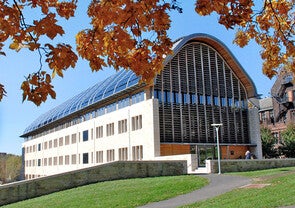
School of the Environment
The School of the Environment is dedicated to sustaining and restoring the long-term health of the biosphere and the well-being of its people.

Jackson School of Global Affairs
The Jackson School of Global Affairs trains and equips a new generation of leaders to devise thoughtful, evidence-based solutions for challenging global problems.

Yale Law School hones the world’s finest legal minds in an environment that features world-renowned faculty, small classes, and countless opportunities for clinical training and public service.

School of Management
School of Management students, faculty, and alumni are committed to understanding the complex forces transforming global markets and building organizations that contribute lasting value to society.
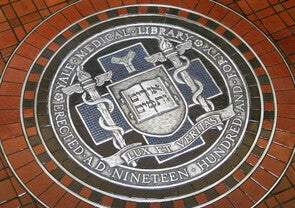
School of Medicine
Yale School of Medicine graduates go on to become leaders in academic medicine and health care, and innovators in clinical practice, biotechnology, and public policy.

School of Music
The Yale School of Music is an international leader in educating the creative musicians and cultural leaders of tomorrow.
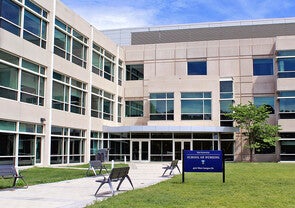
School of Nursing
The Yale School of Nursing community is deeply committed to the idea that access to high quality patient‐centered health care is a social right, not a privilege.
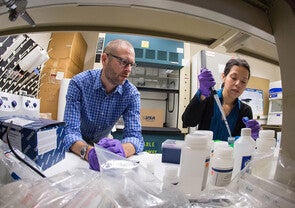
School of Public Health
The School of Public Health supports research and innovative programs that protect and improve the health of people around the globe.
Faculty of Arts and Sciences (FAS)
The Faculty of Arts and Sciences is composed of the departments and academic programs that provide instruction in Yale College and the Graduate School of Arts and Sciences.
Centers & Institutes
A number of our centers and institutes offer additional opportunities for graduate and professional study.
Graduate Study at Rice University
Rice University is a comprehensive research university located on a 300-acre tree-lined campus in Houston, Texas. We pursue pathbreaking research and create innovative collaboration opportunities that further our understanding and contribute to the betterment of our world.
This is HOUSTON
Rice is a 300-acre forested oasis in the heart of Houston's museum district - next door to the world’s largest medical center, a short train ride away from downtown and the nation’s second-largest theater district. Surrounding our campus is a world of opportunity and graduate students are encouraged to take advantage of all the cultural, culinary and sporting events Houston has to offer.
- Cost of Living
- Museum District
- Entertainment
- Restaurant Scene
- Transportation
Schedule/Calendar/Catalog
- Class Schedule
- Academic Calendars
Health/Wellness
- Student Health Center
- Needlestick Guidelines
- Needlestick Incident Report
- Counseling Services
- Service Desk
- Password Reset
- TechZone (Computer Store)
- Student Directory
First student to graduate from the PhD Health Sciences program to continue research on prosthesis use among veterans
- Kate Hunger
- Thursday, May 30, 2024

The first graduate of the PhD in Health Sciences program plans to continue his research on lower extremity prosthesis use among veterans.
That graduate, Roland Paquette III, PhD, MPAS, PA-C, is a practicing physician assistant and was an assistant professor in the Department of Physician Assistant Studies from 2017 through May 2024. He recently joined the founding faculty to create the Physician Assistant Studies program at Baylor University as a clinical associate professor and director of outcomes and assessment. Paquette continues to hold a clinical appointment in the Department of Emergency Medicine in the Joe R. and Teresa Lozano Long School of Medicine and practices in the emergency room at University Hospital.
In March, Paquette defended his dissertation, “Barriers and facilitators of lower extremity prosthetic use to affect health disparities in veterans.” Paquette uses prostheses as a bilateral transfemoral amputee, having been injured in while serving as a U.S. Army Special Forces medic in Afghanistan in 2005.
“I decided to look at trying to improve veterans’ overall health after amputation of a lower extremity, and my theory came down to why not try to increase lower extremity prosthesis use if we can in a safe and medically indicated way,” Paquette said of this dissertation topic. “Because ultimately, we know that ambulating using prostheses is certainly a physical activity, and the answer to a lot of lifestyle-related disorders is physical activity.”
Paquette’s research revealed something he found baffling and plans to continue studying: Within a cohort of veterans receiving care from the U.S. Department of Veterans Affairs for at least one lower extremity amputation, the presence of pain within their amputated limbs or low back was associated with less likelihood of a degradation in their prosthesis use over time, contrary to what Paquette found in his review and meta-analysis of the general population after amputation.
The first paper resulting from Paquette’s research, “Duration, frequency, and factors related to lower extremity prosthesis use: systematic review and meta-analysis,” was published in Disability and Rehabilitation in 2023.
Paquette’s success demonstrates the potential of the PhD in Health Sciences program, a collaboration between the Graduate School of Biomedical Sciences and the School of Health Professions , said Program Director Giselle Carnaby, PhD, MPH, CCC-SLP.
“This graduate sets the bar for our program moving forward,” Carnaby said. “Roland's work is the beginning of a programmatic line of research addressing an unmet need in this area. Specifically, it offers direction to future studies investigating motivational and psycho-social aspects of prosthesis usage following amputation. The interaction (with) and contribution to military health cannot be overstated.”
Associate Professor Owen Hill, PhD, served as Paquette’s dissertation co-chair. He praised Paquette’s work ethic and the potential of his current and future research.
“Any setback in terms of his personal project, he and I would meet, and then he would come up with what I consider the optimized solution, and then he would execute it immediately,” Hill said.
The PhD in Health Sciences program is a good fit for allied health professionals who want to develop research and advance their profession, Hill said.
“That is what the program can provide. You come in as a clinician and leave a clinician-scientist,” said Hill, who also serves as research director for the Department of Physician Assistant Studies in the School of Health Professions.
For information about the PhD in Health Sciences program, visit the program’s web page .
Share This Story

IMAGES
VIDEO
COMMENTS
Yes, a PhD student is a graduate student. They have spent up to 4 years in their undergraduate programs in order to qualify for admission into a PhD program. PhD students are able to call themselves graduate students but many choose to refer to themselves as PhD students or candidates.
Students may be in the initial stage of the program or about to complete the coursework (before beginning their research). On the other hand, a PhD candidate has completed all coursework and has at least started their research. They may have completed their dissertation and are preparing to defend it. 2.
A PhD student is different from a PhD candidate in that the student is still working through the coursework. They have not yet begun the dissertation process or passed the qualifying exams. A PhD student may also be in the process of taking the qualifying exams, but not yet finished with them. Many people believe that earning a doctorate degree ...
Your Starting Point for Graduate Study at Stanford. Browse this website to learn about university-wide requirements and processes for admission to MA, MS, PhD, and other non-professional graduate programs in the following Stanford schools:. Graduate School of Education | School of Engineering | School of Humanities & Sciences | School of Medicine | Doerr School of Sustainability
The PhD historically prepared students to take on faculty roles in colleges and universities, and that is still the goal for many students pursuing the PhD. However, today the PhD is a sought-after degree in many other industries including pharmaceutical research, arts organizations and other nonprofits, publishing, government policy, big tech ...
A graduate student is someone who has earned a bachelor's degree and is pursuing additional education in a specific field. Graduate Degrees. More than 1,000 U.S. colleges and universities offer programs leading to a graduate degree in a wide range of fields. The two main graduate degrees in the United States are the master's degree and the ...
Best Education Schools. Educators may find it necessary to earn a graduate degree to meet their career goals. # 1. Teachers College, Columbia University (tie) # 1. University of Wisconsin--Madison ...
The Harvard Kenneth C. Griffin Graduate School of Arts and Sciences is a leading institution of graduate study, offering PhD and select master's degrees as well as opportunities to study without pursuing a degree as a visiting student.
There are, generally speaking, three kinds of graduate degrees offered by graduate schools: the Master of Arts, the Master of Science, and the Doctor of Philosophy (PhD). The MA and MS offer additional schooling in a discipline beyond a bachelor's degree. A PhD is the most advanced degree in a given academic field.
Offered jointly by the Harvard Graduate School of Education and the Harvard Kenneth C. Griffin Graduate School of Arts and Sciences, the Ph.D. in Education provides you with full access to the extraordinary resources of Harvard University and prepares you to assume meaningful roles as university faculty, researchers, senior-level education leaders, and policymakers.
Discover a focus and intensity greater than you may have thought possible. As a PhD student at Stanford Graduate School of Business, you will be inspired and challenged to explore novel ideas and complex questions. Fall 2024 applications are now closed. Applications for Fall 2025 will be available in September 2024. Fields of Study.
The Doctor of Education Leadership (Ed.L.D) is a three-year, practice-based program designed to produce system-level leaders in American pre-K-12 education. The Ed.L.D. curriculum mines the vast intellectual and professional resources of HGSE, the Harvard Business School, and the Harvard Kennedy School, and includes a 10-month residency in the ...
Graduate Studies. Commencement 2019. The Harvard Department of Physics offers students innovative educational and research opportunities with renowned faculty in state-of-the-art facilities, exploring fundamental problems involving physics at all scales. Our primary areas of experimental and theoretical research are atomic and molecular physics ...
The U.S. News & World Report top-ranked school prepares graduate level pre-licensure students and current BSN or advanced practice nurses to be health care leaders through a variety of MSN, DNP, and PhD programs. Students can focus on a wide range of advanced practice specialty areas - including health care organizational leadership, nurse anesthesiology, pediatric, adult/Gerontological ...
In collaboration with the Harvard Kenneth C. Griffin Graduate School of Arts and Sciences (Harvard Griffin GSAS), Harvard Kennedy School immerses you in rigorous learning that bridges academic disciplines and draws from leading faculties across the university's graduate schools. When you pursue a doctoral degree at HKS, you are among ...
PhD students are all mature students, as they have already completed undergraduate and postgraduate degrees already. Most PhD students will have done a masters in preparation for starting a PhD , this is often an MPhil or a Masters by Research. All of this previous study means that PhD students have strong study skills and have spent time ...
As a PhD student in the Harvard philosophy program, you'll have the opportunity to develop your ideas, knowledge, and abilities. You'll work with other doctoral students, our faculty, and visiting scholars, all in a stimulating and supportive environment. The program has strengths across a broad range of topics and areas, so you'll be able to ...
The two most common types of graduate degrees are master's and doctoral degrees: A master's is a 1-2 year degree that can prepare you for a multitude of careers. A PhD, or doctoral degree, takes 3-7 years to complete (depending on the country) and prepares you for a career in academic research. A master's is also the necessary first ...
U.S. News weighs factors such as employment rates, student selectivity and reputation to rank the top graduate business schools. 2024 Best Business Schools. # 1. Stanford University (tie) # 1 ...
The Princeton Graduate School welcomes applicants who are seeking to reimagine what's possible in their fields. Global in scope, yet intimate enough to foster new, cross-disciplinary connections, we believe that the power to shape what's next begins with you. Highly selective Master's Degree Programs in architecture, engineering, finance ...
The Harvard Kenneth C. Griffin Graduate School of Arts and Sciences is a leading institution of graduate study, offering PhD and select master's degrees as well as opportunities to study without pursuing a degree as a visiting student. Harvard University. Richard A. and Susan F. Smith Campus Center. 1350 Massachusetts Avenue, Suite 350 ...
A Graduate student is usually enrolled with the objective of doing a PhD, many Graduate students, provided they have the coursework and thesis, might get a Masters degree in the middle of the program along with the PhD. Usually for postgraduate students I also think is for post docs, but I'm not sure. In Mexico (and maybe France, because we ...
Dean's Emergency Fund. The Dean's Emergency Fund enables terminal master's and PhD students in the Graduate School of Arts and Sciences to continue making academic progress despite unanticipated, extreme financial hardships that cannot be resolved through fellowships, loans, or personal resources. The maximum award for eligible requests is ...
Yale offers advanced degrees through its Graduate School of Arts & Sciences and 13 professional schools. Browse the organizations below for information on programs of study, academic requirements, and faculty research. ... staff, and student body qualified persons of diverse backgrounds. University policy is committed to affirmative action ...
Expand Your Network. The Office of Science Graduate Student Research (SCGSR) program creates a pathway for you to advance your PhD thesis research while working at a Department of Energy (DOE) National Laboratory, collaborating with world-class scientists, and using state-of-the-art facilities and cutting-edge scientific instrumentation.
Graduate Study at Rice University. Rice University is a comprehensive research university located on a 300-acre tree-lined campus in Houston, Texas. We pursue pathbreaking research and create innovative collaboration opportunities that further our understanding and contribute to the betterment of our world.
Standard entry. The minimum academic qualification requirements for admission into a PhD or doctoral course are: A bachelor's degree of at least four years in a relevant discipline, which includes a research thesis or project, with a minimum overall average grade of an honours degree equivalent to the Second Class Honours Division A; or. A ...
That graduate, Roland Paquette III, PhD, MPAS, PA-C, is a practicing physician assistant and was an assistant professor in the Department of Physician Assistant Studies from 2017 through May 2024. He recently joined the founding faculty to create the Physician Assistant Studies program at Baylor University as a clinical associate professor and ...
Back Medical Physics PhD student Meyer awarded Fulbright Fellowship. May 29, 2024 Elizabeth Murphy/MD Anderson UTHealth Houston Graduate School. Henry Meyer, a PhD student in the medical physics program, has been selected to receive a 2024 Fulbright Fellowship to support his research in radiation therapy to treat cancer.
Over the last few years, graduate psychology degree programs, both at the master's and doctoral levels, have shifted their admission criteria from an emphasis on standardized testing to components that reflect applicants' experiences. According to the most recent edition of Graduate Study in Psychology, 1 for 2022-23 applications ...